#here but this is also about many if not all american shows specifically the ones airing on the streaming services
Explore tagged Tumblr posts
Text
writing young children developmentally accurately
Writing young children convincingly, especially if you aren't around them often, can be tricky because from birth to age five children change so much, and they also typically progress in a certain way. This is why parents refer to young children's age in months ("She's 18 months!") for the first several years. 12 month olds and 23 month olds are wildly different, even though they're both 1.
Because of this, it's great to be aware of whether the 18 month old in your fic/story would typically be walking, and if that 4 month old baby can typically hold their head up. If you're way off it can ring as odd for the reader, even if they aren't experts themselves.
A key word here is typical. Children typically develop skills around certain times and in a certain order, but it can vary. No child develops exactly on target, some variation is normal. And it isn't necessarily because of disability or giftedness. It is possible for a one year old to be talking, and it's possible for an five year old not to be. It is still worth being read up on typical development because if your one year old is talking fluently, it makes sense in universe for other characters to remark on it quite a bit!
You do not have to run out and get a job at a daycare or take a college level child development classes to write young children confidently. Here are some resources I recommend as someone who works in the child development field, that I reference myself even though I've taken a ton of classes/worked with young children for over a decade:
CDC's Developmental Milestones
This is a good resource on when milestones (smiling, walking, dressing onesself) TYPICALLY emerge. They are not exhaustive and also not cumulative (18 month milestones link just includes what typically emerges at 18, not everything that already happened) so read each stage up to the age you're writing to be most informed
There are also photos and videos on many of the milestones, which is also great to visually confirm what this age looks and moves like
Child Mind Institute Complete Guide to Developmental Milestones
This is similar to the CDC resource BUT it's all on one page so you can see how the skills build cumulatively. It has less media and linking out, so this is a great one to refer to while writing after you're a little more confident in what your child character can do
American Speech-Language-Hearing Association Communication Milestones
This is similar to the first 2 in that it shows the typical skills by age but goes into much further detail about communication. Because of the nature of a written story much of how your child character will come across will be in how they communicate and young children typically communicate in specific ways based on where they are in their development. This resource breaks it all down!
Lurie's Play Development Milestones
Even the way children play is very dependent of what stage of development they are in. A six month old won't pretend their toy truck is a rocket ship, for example. This resource breaks down what play typically looks like by age.
Development of Healthy Eating
I'm not familiar with this source, but this page is a great simple breakdown on healthy eating with young children from breast feeding to solid foods that are choking hazards.
-----
These are all great resources for anyone writing a young child character, regardless of your IRL level of contact with young children. I regularly am with young children, my entire profession is about healthy child development and I still refer to resources every time I write a young child.
Don't feel like you have to follow each of these guides perfectly--it's actually more realistic for a child character to be slightly off track or even way off track in one or two ways than for them to be matching perfectly (You'll even notice these guides don't match perfectly across the board.) But generally writing for a developmentally informed point of view (Even just a few minutes of checking out a milestone table while writing) can make your child characters feel REAL and authentic.
53 notes
·
View notes
Text
hollywood needs to adopt the c-drama marketing style where they release specially curated behind-the-scene content once they finish filming. i'm so tired of this gatekeeping lol.
#i'm talking specifically about#wednesday netflix#here but this is also about many if not all american shows specifically the ones airing on the streaming services#that make us wait for years before new seasons arrive#and yeah those superhero movies too ig#like marvel or dc fans will still watch their movies with or without spoilers so what's with all this secrecy stuff?#just put me out of my misery lol#randomly thought of this#mabe makes a post
6 notes
·
View notes
Text
I have to explain what is going on in the UK, because it is absurd.
So, this is Gary Lineker:

He's known for a fair few things over here. He was a very good (association) footballer, playing for England in the 1986 and 1990 World Cups, winning the Golden Boot in 1986, and managing to never get a single yellow card in his playing career. He played for Leicester City, Everton, Barcelona, and Tottenham, before finishing his career in Japan. But if you aren't in your mid 30s, you probably know actually know him him for a couple of other things. The first is the role of spokesman for another Leicester icon, Walkers Crisps (which are sort of equivalent to Lays, but hit different), as pictured above. Despite being a notably clean player, he used to play a cheeky serial crisp thief. I don't think he's done that for well over a decade, but his ads were on the telly a lot when I was a kid and it's a bit like learning that the hamburglar was an incredibly clean (American) football player or something.
The second thing Gary is widely known for is having presented Match of the Day, the big football program on the BBC, the sort-of state broadcaster, since 1999. He is, incidentally, very well paid for this (though with a consensus that he could get even more if he went to one of the non-free-to-view broadcasters because he is very good at the job). He also has a twitter account. And political opinions. So, the UK government has got itself dead set upon doing heinous stuff that will totally somehow work to prevent people who want to come to the UK making the perilous crossing of the Channel (between England and France). By heinous, I mean "openly advertise that they won't attempt to protect victims of modern slavery" stuff. It's very obviously using a legal hammer to victimise a marginalised group of people in order to win votes. And, uh, I should clarify that by "legal" I mean "using the passage of laws" - the policy is, in addition to all the other ways it's awful, probably incompatible with the Human Rights Act and the UK's international law obligations. Gary, top lad that he is, objected to this. On Tuesday 7th March, he made a quote Tweet of a video of the Home Secretary, Suella Braverman, bigging up the policy, he wrote "Good heavens, this is beyond awful.". This got a bunch of backlash from extremely right-wingers, and then he made the tweet that really got him in trouble (with right-wingers): "There is no huge influx. We take far fewer refugees than other major European countries. This is just an immeasurably cruel policy directed at the most vulnerable people in language that is not dissimilar to that used by Germany in the 30s, and I’m out of order?".
Now, I am not actually subjecting myself to watching a video of Suella Braverman bigging up a cruel policy to say whether the specific comparison of the language to 1930s Germany is accurate. But needless to say, Ms Braverman was amongst the many figures on the right of UK politics objecting to Gary's rhetoric. And here's the part where a fact about the BBC comes in: it is nominally neutral and impartial (and so, of course, is routinely accused of bias from all sides but particularly the right-wing), and has something of a code for its contributors to this effect. Now, that code has previously been applied to Gary Lineker, over a comment about whether governing Conservative Party would hand back donations from figures linked to the Russian regime. But it generally hasn't been applied too strongly to people like Gary, whose roles have nothing to do with politics (such as presenting a "here's what happened on the footie today" show), on the basis that, well, their roles have nothing to do with politics. However, when directly asked about whether the BBC should punish Gary Lineker for his tweets, government figures basically went "well, that's a them problem". But a couple of days passed, and it seemed like Gary's approach of "standing his ground because he did nothing wrong" was working and everything would die down. He was set to get 'a talking to' but not much more than that. The Conservative right, after all their fire and fury earlier, had gotten bored and moved onto something else. And then, on Friday 10th March, the BBC announced that he would be suspended from hosting Match of the Day this weekend. But it could still go ahead, because there are, like, other hosts! Except, well, funnily enough, when you take a beloved figure off air, for making a fairly anodyne tweet, no one wants to be the scab who actually takes up the role of replacing him. Gary's two co-hosts, Alan Shearer and Ian Wright, said that they would not appear without him. People who (co-)host Match of the Day on other days followed suit. The net result is that Match of the Day is currently set to air without hosts, BBC commentary, or global feed commentary. And the solidarity shown to Gary Lineker, over what is very flagrantly actual cancel culture and an attack on freedom of speech (the logic implied is that institutional impartiality requires that no one say anything too critical of the government ever), has continued to grow. The BBC has pretty much been unable to run pretty much any live sports content today, and has resorted to raiding the BBC Sounds archive to fill the sports radio channel. And, as of 17:30 on Saturday 11th March, the situation shows no signs of improvement, though some are calling for the Chairman Richard Sharp, who is separately facing corruption allegations, to resign (yes I linked to the BBC itself there, there is nothing, nothing, the BBC loves more than going into great detail about how much the BBC sucks).
16K notes
·
View notes
Text
so american ✢ max verstappen

pairing: max verstappen x singer!reader
warnings: none; just some silly shit, some swearing, google translate dutch, max's home race is belgium and not the netherlands for timeline related reasons
summary: y/n is teasing way too many things at once…..can the fans keep up?
author's note: this is NOT an original concept i am aware of this. but this hasn’t left my brain in days. i’ve got a very specific vision so let me cook. i know i haven't posted on here in over a year but i've returned an f1 fan. enjoy!
yourname added to their story!
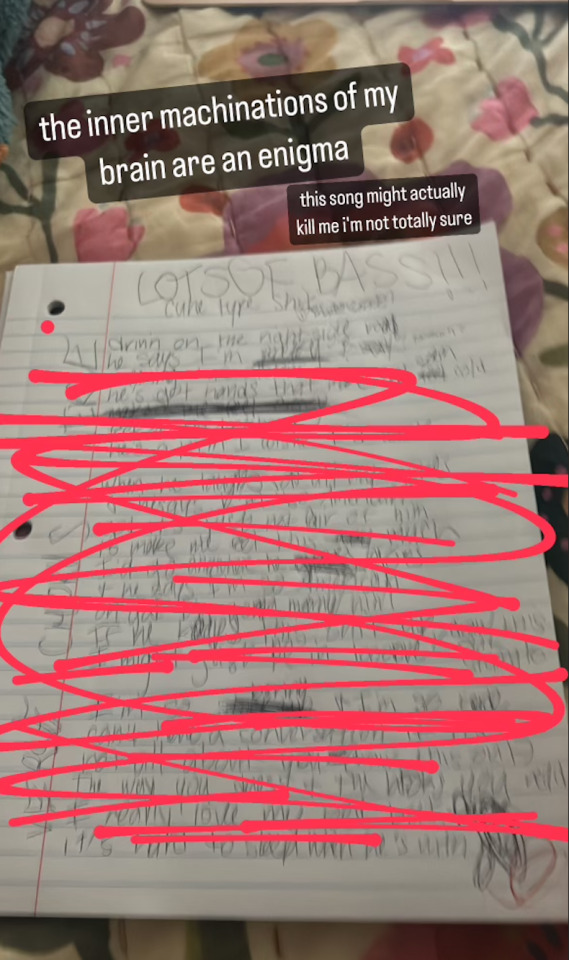


liked by delwatergap, maxverstappen1, and 3,491,842 others
yourname: i think i'm in love with montreal. sorry i’ve been so off the grid but i am Loving Life so hard. so much inspo in my life rn. will talk soon i promise. love u all bunches 🫶🏼🌷
ynsbestfriend: hey queen you have done it again!
-> yourname: ugh i love you so bad
user1: UM BAE WHOS THAT IN THE LAST SLIDE?
-> yourname: beats me!
-> user1: i do not trust you.
lilymhe: hiiiii pretty girl
-> yourname: stop im blushinggggg
user2: i fear she’s in her lover girl era
-> user3: girl help im so fucking scared right now what’s happening
user4: so does any of this have to do with your story from yesterday??????
*liked by yourname.*
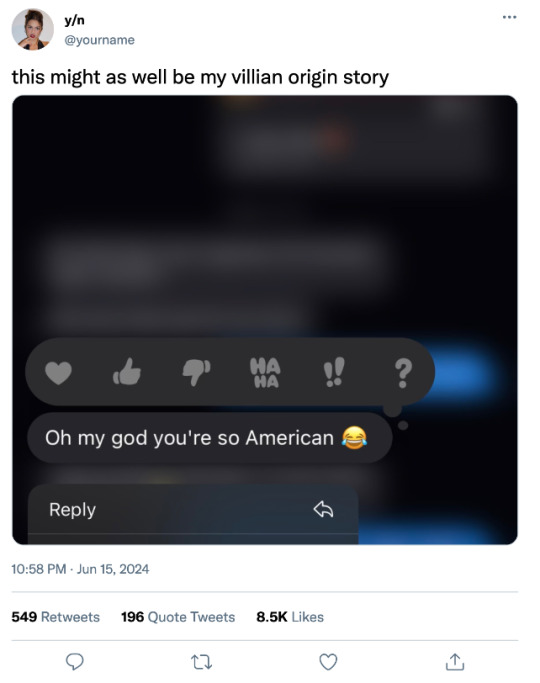
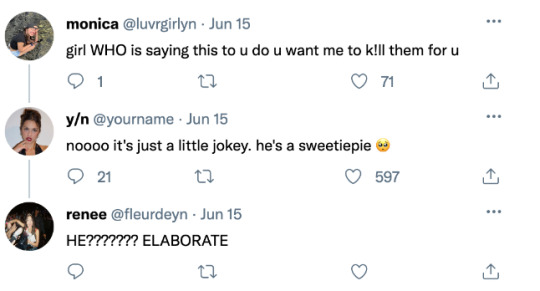

maxverstappen1 added to their story!

yourname added to their story!

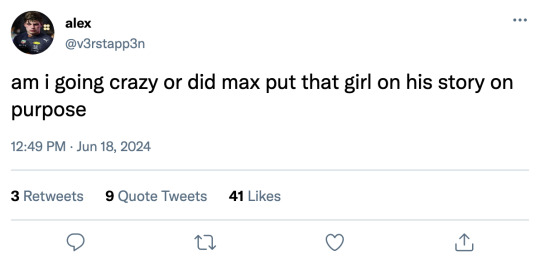


liked by honeymoon, danielricciardo, and 3,572,679 others
yourname: life's been a beach lately. clearly i've been loathing my time in spain ://///
user5: IS THAT MAX
-> user6: no bc it HAS to be
heidiberger_: Loved spending the week with you! 🤍
-> yourname: same!!!!!! let's do it again sometime 🥰
-> user6: NOT DANNY RIC'S GF COMMENTING?????? AND LILY MUNI HE ON HER LAST POST???????
user6: no bc even if her and max were dating and she's been traveling with him why have we not seen her in the paddock
-> user7: to throw us off our rhythm????
-> user8: what if they debut at his home race in spa ijbol

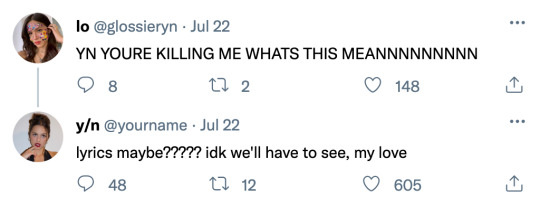
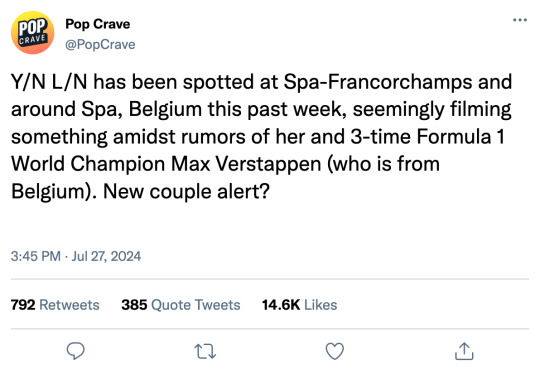

liked by landonorris, taylorswift, and 4,683,892 others.
tagged: maxverstappen1, redbullracing, and ynsbestfriend
yourname: hahaha felt like dropping 2 things at once on u guys LOLLLLLLLL. thank u to redbullracing, spagrandprix, and the city of spa for letting me and my friends crash the race the other week to film the “so american” music video, and to maxie for winning in ur home country. it was so fucking special to be there supporting u. i love u baby!
ps. another thank u to max for thinking i'm the funniest person in the world and making fun of my americanness for as long as i've known him (which is quite a while).
enjoy this tune guys. it's urs forever and i hope u love it as much as i love the person it's about 🫶🏼 🇧🇪 🇳🇱 TU DU DU DU!!!!!
user9: OH NMY GOD I FUCKING KNEW I SAW U IN THE GARAGE
ynsbestfriend: thanks for letting me third wheel mommy
-> yourname: no one else i'd rather drag along!!!
danielricciardo: Welcome to the family! Song's a banger although I can't believe it's actually about Max of all people 🤢 GROSS!!
-> yourname: jealousy is a disease danny.
user10: i actually cannot fathom this this is so me core
alexandramalsaintmleux: I am so glad to know you! Your happiness is everything 🩷

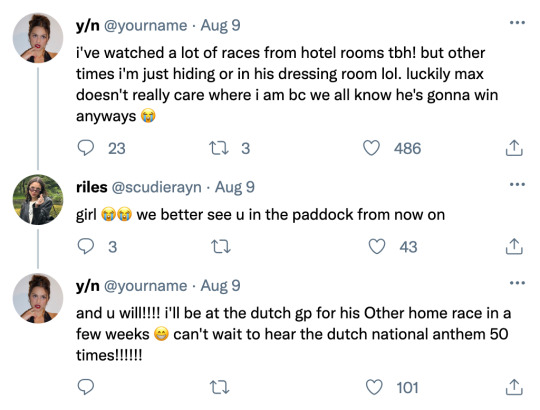

liked by sabrinacarpenter, carlossainz55, and 4,783,522 others.
tagged: yourname and ynsfriend
maxverstappen1: Spent a week away in New England with my talented, gorgeous girl. Loved getting away and experiencing America through her eyes! Consider me an honorary American now! Also, stream “So American” wherever you choose. It's about me 😉
yourname: does this mean i can stop hiding in the garage now???
landonorris: Happy for you mate! Love the song as well yourname 🤍
-> yourname: awe thank u lando 🥺 i got more to show u when i see u next!!!!!!
redbullracing: ❤️💙
user11: MAX IS IN HIS LOVER BOY ERA
danielricciardo: How many more times can you say American?

liked by charles_leclerc, chappellroan, and 3,694,849 others
tagged: maxverstappen1
yourname: nothing like celebrating the best 2 weeks of my life than showing my boy around ye olde stomping grounds #soamerican
liamlawson30: This is so American of him
-> yourname: like he fits in so well!
lydianight: u'll have him in the american flag board shorts in no time
-> yourname: baby steps :///
user11: she really is in her lover girl era 🥺
clairo: did you take him to the chipotle that is also a historic landmark downtown??
-> yourname: dude of COURSE i did. he said it was "interesting"
yourname added to their story!
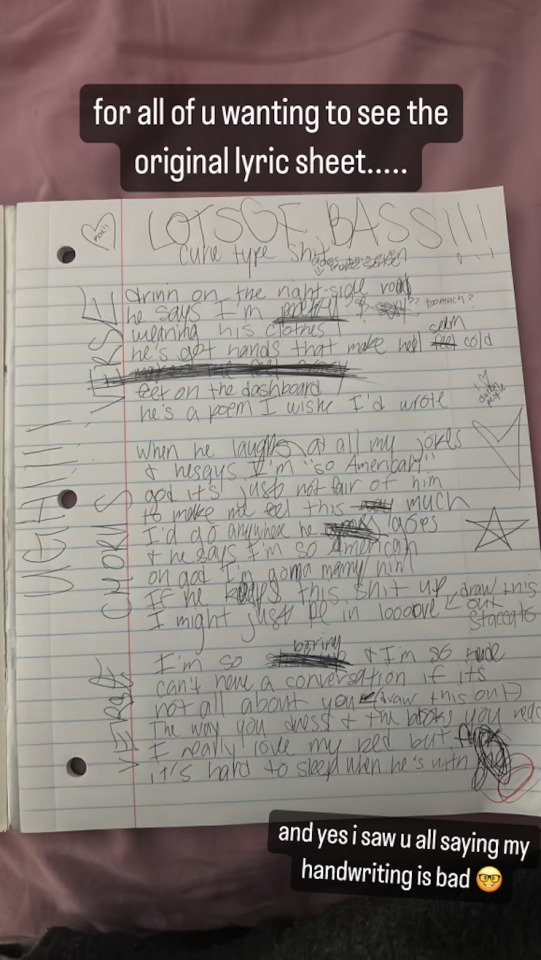
#formula 1 x reader#f1 x reader#f1 imagine#formula one x reader#f1 smau#max verstappen x reader#max verstappen x you#max verstappen imagine#max verstappen#mv1 x reader#f1 texts#f1 fanfic#f1 social media au
2K notes
·
View notes
Text
Okay so, I don't think I've spoken of the saga here yet but! Gather round. I shall tell you a long story about the bird I just acquired and why she is VERY IMPORTANT.
At the beginning of last fall, I started looking into quail genetics a little more, because I got tired of not being able to sex my Celadon quail by their feathers. Originally I thought I could kill 2 birds (ok maybe more) with 1 stone and order nice jumbo wild type (which MANY places advertised as wild type jumbo) hatching eggs, and this would help me put some size on the Celadons (jumbo) while also making them feather sexable (wild type). Perfect!
But then I come to find out that pretty much all jumbo lines are jumbo BROWNS, as in they all have the sex linked brown (SLB) gene. So, I was a little confused and a LOT annoyed because I wanted to work specifically with the wild type color/pattern. No mutations just straight, plain wild type.
And EVERYWHERE I looked - major production hatcheries, private breeders through websites, Facebook groups, local swaps, craigslist, e v e r y w h e r e -
People ONLY had SLB.
This spring I came across a video showing about the differences between SLB and wild type and I figured if the person who made it can tell, maybe she will have some. So I looked her up (not in a stalker way, her farm name was stamped on the video and took me to the website), and what luck! She was in Michigan! Upper Michigan, so still a hike, but not California, y'know?
So I shot her an email and explained that I was looking for WT and that her site said she bred them and that people could do local pickup. She responded yeah she's totally got a bunch! And I said great, I'm also in Michigan, albeit far away, but I don't mind driving 7+ hours each way, because I really need actual, trusted WT for sure birds for my celadon project, can I come pick them up?
Cue the most frankly bizarre email chain in my short life. As soon as I mentioned that I was going to drive, or perhaps that I had a genetics plan in place, she got super sketchy and started saying how she hadn't really paid as close attention to SLB vs. WT, that it mattered less than she thought it would when she started, that I shouldn't focus on that either, and also that "fawn celadon is practically unheard of" in the hobby and "you should focus on a clean Tibetan because it's hard to find without roux in it) implying that I should concentrate on those things instead. And concluded by telling me if I really want WT, to contact this other person (why happens to be someone I can't stand). It all sounded VERY much like she didn't have wild type males, after all, and had thought I didn't know the difference so it wouldn't actually matter. But, it does. It actually matters a lot to me.
So I messaged back to say, well, I don't want to do any of those things, I specifically want to work with this set of genetics and you said you have them so I shouldn't have to go to anyone else??
And then she went radio silent for a week. I kind of figured I'd called a bluff, and that she was one of dozens of people I'd contacted who'd said they had WT only to find out they had SLB. I get that it's difficult to see the difference, but this particular person was the president of the American Coturnix Breeders Association or whatever (found out it's actually just a club formed by her and her friends a year ago, so not as impressive as it sounds, considering they don't actually DO anything- no putting on shows, no newsletters, no certifications, no public breeder directory, no finished SOP, nada), so I kind of expected she should know what she's talking about, if anyone does.
Eventually, after a week, she responded that she had been judging at a county fair, but she had a few heterozygous males (WT het roux, which is fine) and she could set a hatch for me for more if I wanted to come at the end of the month, but she's in WI now, not MI. I said sure, since where she was in WI was actually closer than where she'd been in the UP, and we arranged date/time.
The day of, my neighbor friend, Jude, comes with me for company/keeping me awake through the 15 hours driving round trip. It's a pleasant enough drive. We arrived at a cutesy little house on the edge of town that looks like anyone's house in a neighborhood, with a spacious lawn. The person meets us and takes me around the side of the house to a 6x6x1.5 or so chicken tractor, where she's got some male coturnix. She pulls the available males for me to look through and... fam, they ALL looked SLB, to me.
Now, she swore to me up and down that they couldn't be anything except WT het for roux, because of the way she is breeding them. But I've put these birds next to my SLB males and if I didn't have my males banded, I would not ever have told the difference between them. I still picked up 4 of them, because I will give it a go- worst case, I can produce plain Roux hens/plain Roux males for use in breeding later, best case they do actually produce WT hens and they just LOOK SLB and I have to figure out what the differences are. I don't want to leave without seeing her hens, which she has told me are all WT (which is why the males HAVE to be het for it), and she takes me back. Now the hens, the hens are easy to see the difference. White bellies first of all, but the chest feathers are also wildly different! The shafts are white, the dot around the shaft is dark, ringed in red, ringed in white. On an SLB, the shafts aren't white, it's just a black dot surrounded in a red feather, and the belly is all red/buff/cream, not white.
This is what an SLB hen looks like:
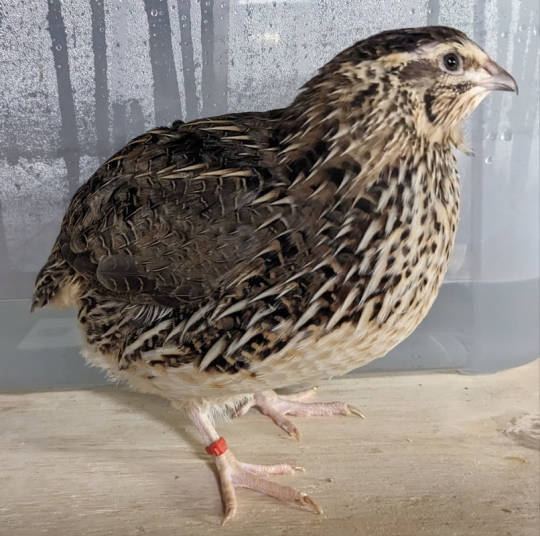
So I take a nice long look to memorize the color, and thank her for showing me and meeting, and we head back home.
I do fecals when I get home because all of the males are VERY thin, no meat on them at all, and since she said she'd been feeding Purina (garbage for fowl feeds), I figured that was why, but no- HUGE coccidia loads in all of them. So I treated them and got them on a better feed. They immediately began putting on meat, and they're find now.
The rest of this summer, I have spent going to local bird swaps and inspecting all of the quail I could find, hoping to find one (1) actual wild-type phenotype bird. Hundreds and hundreds of birds, I have pawed through them all, being super obnoxious to the owners I'm sure, holding and inspecting males. I found ONE suspected WT male (and this is a HUGE "suspected," he could very well be SLB with low red expression). I compared him when I got home and I'm doubting myself still, so I don't know if I will ever actually pair him with the SLB hens or if I'll just wait til I have a roux set.
Regardless, it's been a dry season for getting what I want. It's been a dry YEAR. Yesterday was another swap and more hundreds of quail and me pawing through all of them.
Until.
My eyes landed upon.... her.
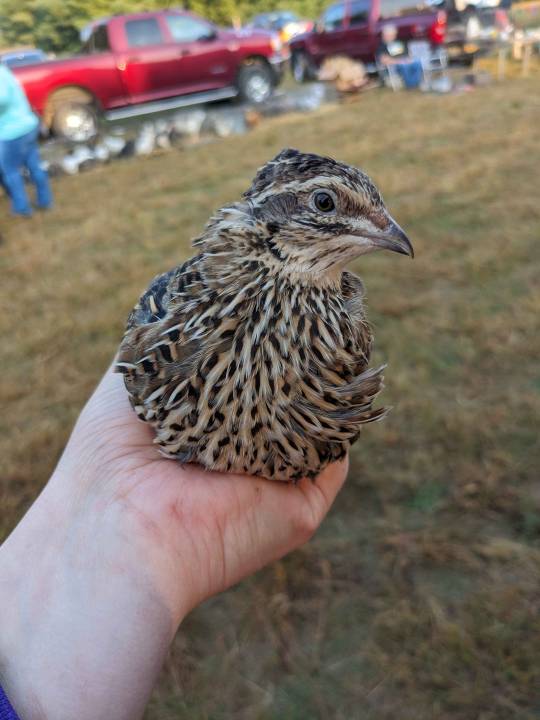
If you've only lived in an area that has american crows and not ravens, you find yourself wondering if crows are ravens. You see a big crow and you think wow! maybe that is a raven! It could be a crow, but it's seems bigger so maybe it's a raven. But, if you take a trip to a place with ravens, and you see one for the first time, you realize that there is no question, when you see a raven. When you see a raven in person, there's no question and not only is there no question, you wonder how you could ever have thought a crow was a raven. It's laughable, while looking at the raven.
That's how finding this bird felt. I'd been picking up every SLB hen and going maybe this is actually WT? It could be SLB but maybe it's WT? But the second I laid eyes on her in the middle of a pack of SLB with some mixed colors, I knew I was looking at WT hen, and I can't imagine how I ever thought maybe an SLB hen was WT.
Here's a better photo of her chest and belly (she's beat UP from her previous home, the back of her head and most of her rump are plucked clean from males). You can see the white shafts and the white belly.
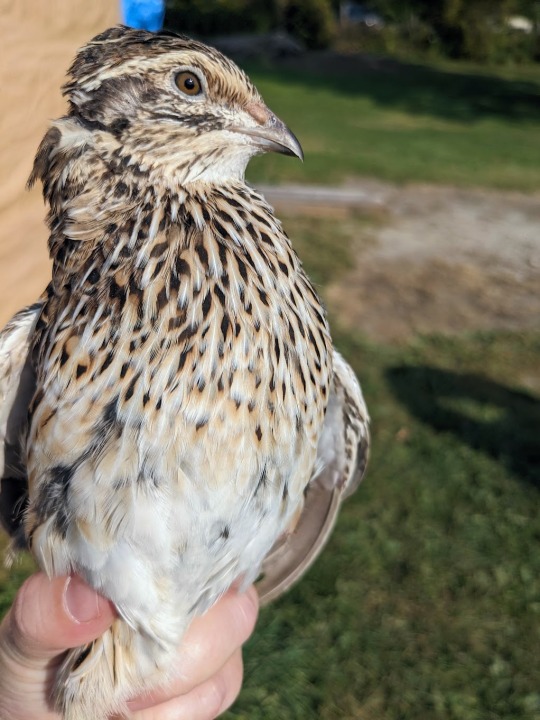
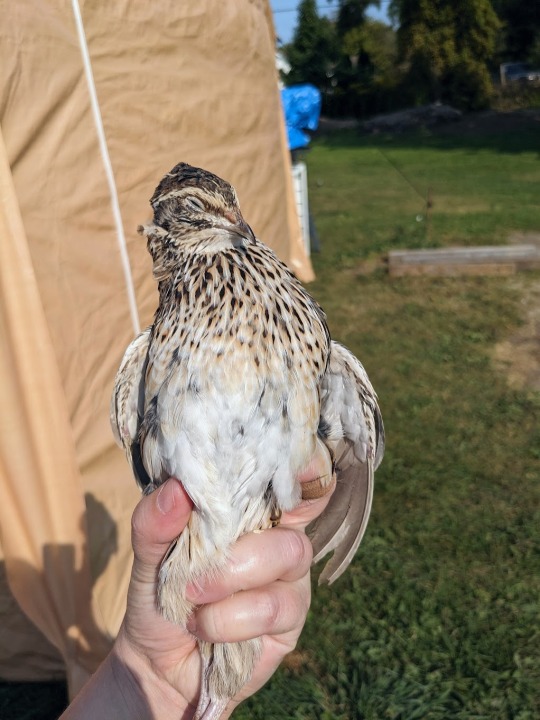
And some other pics of her, showing the grey-brown on her side and back- VERY different than the SLB hens
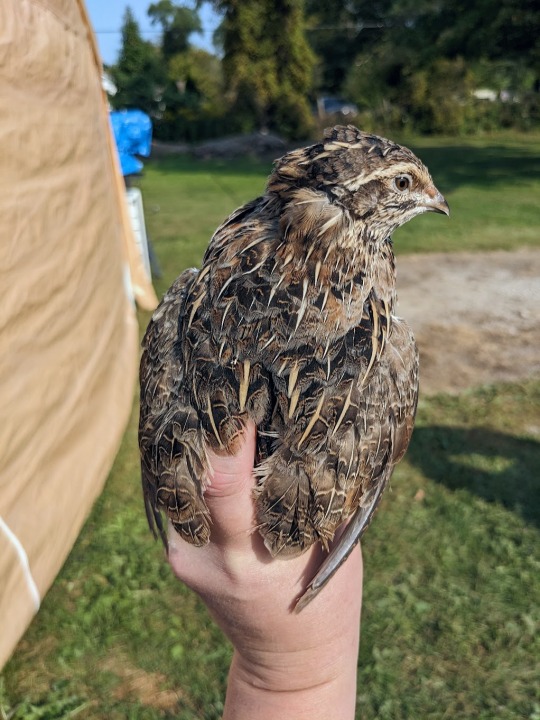
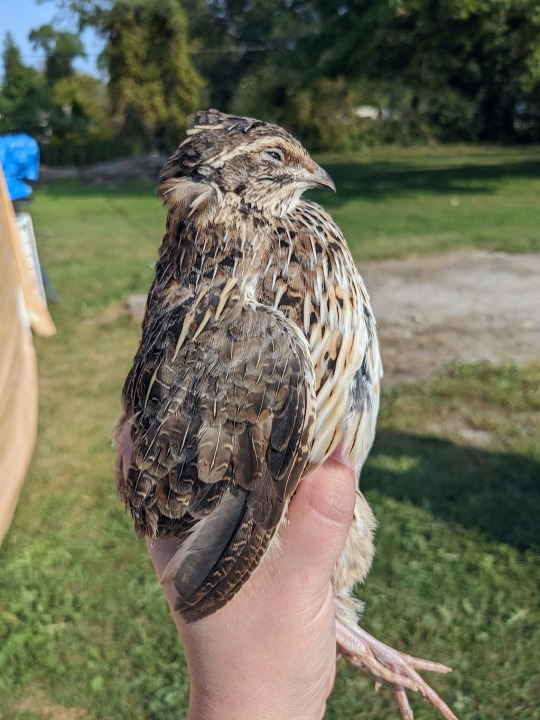
I can't express how stoked I am about this bird. This is the first time after a LOT of effort and time, that I have felt confident I am holding the bird I want.
She's also the indicator that I have a LOT of work ahead of me.
My end goal is to have birds that look like her, weigh 12-14oz, and lay large, blue eggs. I have birds that lay large, blue eggs, I have birds that weigh 12-14oz live weigh, and now I have at least 1 bird that looks like her, which means I can make more that look like her. The first step is cleaning the color mutations out of the celadon line without losing the celadon eggs. This is going to be a bit of a nightmare, BUT, I have a friend helping me out with getting a few celadons that are either WT or SLB (I'm guessing SLB all things considered) to start the work with. I will work over the winter to get a few more actual WT birds here, and to start crossing out the celadons with the SLB jumbos to clean out the other feather color mutations. Once I'm down to just SLB and celadon for mutations, I can clean the SLB out with the WT and roux lines.
This project will likely take me a good 2 years, maybe 3, to complete and then test breed to ensure I haven't lost the celadon gene and I don't have any hidden recessives lingering about. But just having the fucking materials to do it all on hand now is a huge step forward from where I was when I decided to start the project.
569 notes
·
View notes
Text
DUCK! THE CARBINE HIGH MASSACRE - EVERYTHING YOU NEED TO KNOW!
Hello!!!! i’m very autistic and I wanted to put my effort into something I could share with you all, so without any more unnecessary ranting here’s all you need to know about duck! the carbine high massacre. please comment anything I should add or any mistakes I may make, beware this is my first post like this so im a newby go easy on a gal!
Full film:
https://youtu.be/UScvX4bjExg?si=Cohq29YGoYCsOtBY
Trailer:
https://youtu.be/zNtUviDpyQg?si=23nQgFQo75OQ-RC_
Film soundtrack:
https://youtu.be/2ky9FrEj8Fk?si=DqRVcTdFQEtJ6owC
Website archived:
https://web.archive.org/web/20040815013848/http://www.duck2k.com/docs/carbine_comm.html
Other interviews unrelated to specifically this film:
https://youtu.be/gEbZVXdsX-U?si=cG5bTGb41ee-1fFh
https://youtu.be/WUjqIoDidr4?si=sDMMUzzKhIWImuL5
https://youtu.be/W04lj1BdK0o?si=DHRIixDEpn39KBne
Filming:
Duck! the Carbine High Massacre was a spoof about Columbine that was made soon after the massacre, infact only 6 months after. It was created by Joey Smack (Joseph Miller) and William Hellfire (William Apriceno) two (at the time) collage aged film makers. A lot of viewers received it as this as distasteful and terrible, but others find this to be one of the greatest movies of all time. Smack and Hellfire mainly made a living on creating fetish content for their small but loyal cult following, but unlike most of Smack and Hellfires other films this one was based on true events and NOT made for fetish content. (it only had a few titties here and there ;-D) A lot of people who had starred the movie had received a lot of back lash including piles of death threats.
Duck, along with most other Factory 2000 films was edited in Adobe premier and shot on VHS cameras including a broadcast Super VHS camcorder, a handheld RCA, and another unidentified camcorder.
The films first dvd release was in 2004, along with minor color corrections.
The whole budget was about 3,000$ along with inexperienced actors, most of them being Hellfire and Smacks friends taking some time off work.
On Columbines anniversary they had a showing of the film at CBGB’s where an interview with Court Tv was held and they had stated some of the reasons behind making the movie, what they would say to the parents at Columbine, and the reasoning behind making the movie.
It was here where they explained they were *not* making fun of the victims but instead the media in America’s portrayal of all the victims and the shooters on the news.
Interview:
https://youtu.be/QjPlPsGUuKI?si=gel6kBCbpzmUmiDE
The producers had gotten arrested for creating this film, not because of the crude nature but because they had brought fire arms onto school property .
Court Tv producers getting arrested:
https://youtu.be/i7LiNTkksJs?si=C8IbynDgwj9oP9YE
The film racked up $6,034 in the box office and the film was said to have helped pay Hellfires legal fees.
Experiences on set:
William hellfire stated that he did remember filming and creating most of duck because he was so drugged up on pain killers he was using to treat his cancer pains. He had no remorse or regret for making the film
Chris Perez hopped on reddit to describe his experience “Fun and loose. Everyone was really laid back and chill and we had a good time with the filming. There was a script, but we also improved a lot of stuff. Sometimes, Bill, Joe, and Todd would just give us a general idea of what they wanted us to do and say and we'd work off that.” He along with many others would receive blowback from the incident.
Misty Mundae said that the film was a "crappy little movie" which "has permanently staked its place in underground cult cinema"
Cast:
Derick- Joey Smack (Joseph Miller)
Derwin- William Hellfire (William Apriceno)
Retard- Henry Krinkle
Bible Girl- Misty Mundae (Erin Brown)
Play Girl- Lilly Tiger
Car Kid- Chris Perez
Spam Jock- Michael Ovum
Benchpress- Ryan Trimmer
Afro-American- Kendall "Shorty" Ward
Song Girl- Mazur
Goth Boy- Mike Roser
Goth Girl- Liz Bathory
No Info Boy- Michael Lema
The Principal- Larry Wellman
The Janitor- Rodney Sleurtols
Policeman- Karl Pitt
Plot:
With a running of 101 minutes Duck! the Carbine High Masscre was about spoof about the events that took place at Columbine on April 20th, 1999. The movie took place at Carbine high school where two bullied, neo-nazi, trenchcoat wearing high-school students, Derick and Derwin fail at a double suicide attempt. While walking home Derwin gets attacked by jocks and misses school the next day. After school it is then the two high schoolers plan a massacre against their school. The pair then bought several guns from a black market dealer. The next day the two boys bid farewell to their parents for the last time and head to school with the guns in arm. Once they get to school they head to the cafeteria trying to get the student’s attention, when yelling failed Derwin got onto a chair and yelled “What’s for lunch?” before the two began shooting. The two kill several people in gruesome manners before heading down to the basement and sharing a last cigarette before shooting each other.
Other films:
William Hellfire and Joey Smack typically made fetish films and soft-core porno flicks, some notable ones include (but are not limited tooooo!) Erotic Survivor, Silk Stocking Strangler, Vampire Strangler, TITanic 2000, and so many other underground gems. I, infamousbondagemurder sincerely urge you to watch these movies, buy the dvds, and support the living William Hellfire.
Here’s a link to watch more movies by William (unfortunately not ALL his movies are on this keep in mind. i also did not create this link so credits to the creator, which i’m not sure who the creator is)
https://docs.google.com/document/d/1-2iH0WjcolYtbat61F2zLs8SSw5dbMy15mnCnuq4suE/edit
What most people don’t know is Joey Smack starred in the semi-popular film Where the Dead go to Die, where he voice acted as the characters Ralph Stanley, Tommy’s father, and The legless war veteran. He dropped iconic lines in this movie such as: “You fuckin’ dog! What the fuck are you some sort of faggot cannibal! Aggghhh! Your eatin’ my dick!”
Dvd:
Hello! so I am basing this off of the DVD that I personally own, these details may differ from DVD to DVD so if you own a different sort of DVD, please comment anything extra that you have on yours.
Dvd includes:
* Deleted scenes
* Behind COURT TV- cbgb’s screening
* PRODUCER/DIRECTOR interviews
* TODAY is the DAY LIVE in Hoboken NJ
* KING GHIDORAH! LIVE in Hoboken NJ
* Original trailers
* Shooting gallery
* Film soundtrack
* And of course, this wonderful shitty movie :-)
Rest in peace Joey Smack:
On Saturday June 29th, 2019 Joseph Robert Miller, better known by many fans as ‘Joey Smack’ passed away. The circumstances are unknown and a mystery to all fans. There are rumors of suicide but there are no confirmations. I advice you to read his obituary and donate to catholic charities, diocese of paterson, the charity which paid his brother joshua's medical bills after his passing in 1998.
Joseph was loved by many and passed at the age of 41. Fans, family and friends all mourn him to this day. He was described by friends as a kind hearted true and utter weirdo, who had lived in his own world. he didn’t talk to many people but if you had been let into his select group, he would go out of his way to make friends laugh and smile with his warped sense of humor.
His memorial services were held Tuesday, July 2nd, 2019 from 5:00 to 8:00 p.m. at Browning-Forshay funeral home on Lafayette Ave in Hawthorne.
Rest in peace Joey Smack, a truely great man who loved what he did and put so much love into all of his creations. Well wishes to his surviving family and friends:
Joey Smacks obituary:
https://emeto.neocities.org/joeysmack
CREDS:
Mainly wiki like a chud
Actors themselfs
The dvd
I’m dumb
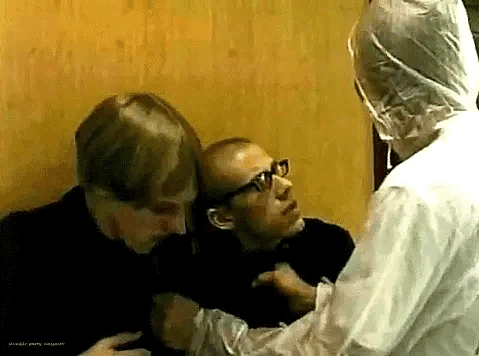

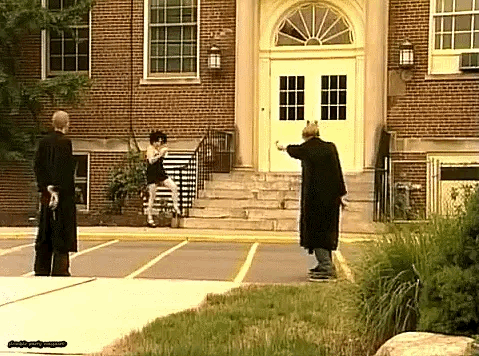
#duck the carbine high massacre#duck! the carbine high massacre#joey smack#tccblr#william hellfire#tcctwt#tcc tumblr#tc community
902 notes
·
View notes
Text
there was a lot of mistakes made in the live action but the worst one without reservation was that the creators did not understand patriarchy and they did not understand women's liberation outside of an american context ( or any context if we're being honest )
it's easy to see on a surface level how that fucked up katara's whole character how she wasn't allowed to have her character defining moments how she wasn't allowed to be angry or even excited or impulsive but i think it doesn't really become clear how deeply wrong the show's conception of gender & patriarchy is (and the implications for the political landscape of the show) until you get into how they destroyed sokka's character too
sokka's whole Complex is born of patriarchy. i'm not trying to do men's rights advocacy here but in my experience when a people is under constant threat, constant assault, constant violence (much of which is gendered) and the traditional "protectors" or "providers" of that people are men, the masculine role becomes protecting women and children. i am not saying this is a good thing or a bad thing but it is true the narrative of violent resistance is overwhelmingly about men. to be a man in a time & place like this means fighting to protect your women, & to die for them is honorable. that is where sokka gets this idea that he has to be a warrior & he has to fight & if necessary die for katara & the rest of the tribe. it's about duty. everyone has a part to play, a role to fill
everyone including women! which is the other half of this. the duty of women is to keep up the home, to maintain a country worth fighting & dying for, to raise children so that the community can have a future. it becomes especially obvious in the context of the show when you see how the nwt lives & in specific how yue lives and dies.
many women participate in patriarchy. many colonized women participate in patriarchy. most of my family comes from or still lives in a country completely devastated by colonialism & its aftereffects & many women in my family believe wholeheartedly in the idea that everyone in the house has a role to play. it's not because these women are stupid or they hate themselves. but when you grow up believing that men & women are fundamentally different, and seeing that women are in specific danger because of their gender, it actually makes a lot of sense to expect the men in your family to protect you, and to raise your sons that way.
in practice that means that men aren't really expected to do anything around the house, especially when there's no actual danger. my aunt literally 2 days ago told me this lol like she doesn't make her sons do anything bc she wants to let their lives be easy before they have to go out into the world & take care of their wives & children.
what does women's liberation look like when an entire community is under threat? colonized women have been dealing with this question as long as colonialism has existed. the writers of this show don't even pretend to understand the question, much less to formulate a thoughtful response to it. they just say oh, well, katara, yue, & suki are all the exact same type of liberated girlboss for whom patriarchy is no significant obstacle.
which brings us back to sokka lol. sokka, at the beginning of the show, has completely subscribed to patriarchy, has integrated it into his sense of self. he has a lot of flaws, but he also has a lot of really good traits. his bravery, sense of honor, loyalty, work ethic, selflessness, all of this came from him striving to be a good man. he would die to protect katara, because she's his sister. he also has her wash his socks & mend his clothes, because she's his sister. even after he meets suki, humbles himself, & expands his view of the role a woman can play, he doesn't completely disengage from patriarchy. at the end of the day he believes in his soul that a good man's duty is to fight & if necessary die for his people, & that's exactly his plan. this is a very real psychic burden. pre-aang, it's also largely fictional & completely ridiculous. we're SUPPOSED to think it's ridiculous. he's spending his time training babies & working on his little watchtower. the swt hasn't been attacked since their mother was killed because it has been completely stripped of all value or danger it once held for the fire nation, & everybody knows this. there is very little "men's work" left, aside from hunting & fishing, which is so damaging to sokka's self image he resorts to toddler bootcamp to feel useful. the contradiction here is comical. it's also completely devastating. that's supposed to be the fucking POINTTTT like colonialism & patriarchy convinces this young boy he needs to be a soldier & die for his family. & you know what he does? He acts like a young boy about it. they didn't just leave this unexplored in the remake they completely changed the circumstances to 1. make sokka incompetent for some reason 2. make his "preparations" seem less ridiculous. Which ruins the whole character. Possibly the whole show.
all this makes the writing of katara & the other women infinitely more offensive to me. katara is a good character because she believes in revolution. she wants to liberate her people from imperialism, & she wants to liberate women from colonial gendered violence, traditional patriarchy in her own culture, & the complicated ways those things interact. it is LITERALLY the first thing you're supposed to learn about her. she's the PERFECT vehicle to address the question of women's liberation under colonialism. one of the things i was most looking forward to seeing in this show was how labor is distributed in a place where almost everything that needs to get done is "women's work" & how it affects katara & sokka's day to day relationship when their lives weren't at risk constantly. what actually are her responsibilities every day, & how do they compare to sokka's? how does her grandmother enforce these traditions with katara & sokka, & how is that informed by her own experiences in the nwt? what does patriarchy look like in a tribe made up of mostly women & children? it's so important to who katara is & what she believes! but why bother exploring any of that when u could instead make her a shein model who has nothing in common with the source material except her hairstyle lol.
yue is actually even worse to me bc yue is supposed to be sokka's counterpart. she's supposed to show you how destructive it is for women specifically to internalize this gendered duty so completely. it sucks for sokka, but he is a man & thus his prescribed role gives him some agency. yue's role affords her no agency whatsoever, & this is the POINT. to make her someone who's allowed to break things off with her fiance if she likes, who sneaks off to do what she wants when she's feeling stressed, whose will is respected as a monarch, like what is even the point of yue anymore? in the original the whole reason she was even allowed to spend time with sokka was because her father knew she was with a trustworthy boy. her story completely loses all significance when the dimension of patriarchy is removed from it. the crux of her whole story is that she is not just a princess but the literal & spiritual representation of the motherland. that's what women are supposed to represent during wartime, at the cost of their own sense of self. in order to fulfill her duty to her people she gives her life to them in every single way that matters.
it's just so unbelievably frustrating (and WRONG) that the only types of characters for these writers are "soulless misogynistic fuck" and "liberated american-style feminist." there's no nuance at all! they don't bother exploring how real love manifests in patriarchal communities, & how patriarchy defines the limits of that love. or how for so many of these people their idea of goodness, morality, & honor is gendered. or how imperialism affects not just individuals but entire cultures & their conceptions of gender. but why do any actual work when you could completely change sokka & katara's general demeanors, their entire personalities, & their roles in the tribe so you can dodge any & all nuance
Anyways. in conclusion. it was bad
562 notes
·
View notes
Text
Reconnecting Cherokee Masterpost
I’ve had a few Cherokee posts blow up on here and as a result I’ve gotten lots of ‘my grandma said she was cherokee’ ‘I’m supposed to have Cherokee roots I wish I knew anything about it’ ‘I was never taught anything about my Cherokee ancestry’ type sentiments in my activity. So! I wanna make a little masterpost with some resources on how to verify or disprove these types of family stories and how to get started for those interested in reconnecting!
A little about me and a disclaimer. I’ve not been reconnecting that long, about a year and a half, and before that I didn’t know I was Cherokee. I did not grow up Cherokee and I am white. What I’m going to be talking about is simply resources for genealogy, language, good places to connect online, etc. these are all things I’ve dealt with as I reconnect, but I am not any sort of authority on Cherokee issues or culture. The purpose of this post is to get people who know absolutely nothing about Cherokee identity and community started in learning more and seeing what needs to be done before reconnecting. And I acknowledge that the genealogical records and resources available for Freedmen descendants and Afro-indigenous people may not be as conclusive, and I simply urge Afro-indigenous people to do what research you can. I am also only Cherokee, I can’t speak for how any of this works for other tribes. Now, to get started
I’ll be talking about
Genealogy
Enrollment
Basic info about Reconnecting
and Language
Genealogy
Genealogy is the most important first step for anyone wanting to reconnect, or even just wanting to claim Cherokee ancestry at all. Unless you have done genealogy research that has shown ancestry connecting you to ancestors on the accepted Cherokee rolls or you are or have family who are citizens of one of the 3 federally recognized Cherokee tribes, please do not make claims of Cherokee identity or ancestry.
Fake ‘granny stories’ of Cherokee ancestry are very common, particularly in the South / Appalachia. These stories often go something like ‘my great-grandmother was fullblood Cherokee. She hid out from the soldiers rounding the Cherokee up for the Trail of Tears.’ There are many many variants, such as children being adopted by a white family, being traded away, or just otherwise being left behind or abandoned. I also frequently see ‘they escaped and hid in the mountains,’ ‘they pretended to be white / black,’ etc. Remember, the Trail of Tears happened in 1838, 185 years ago. My ggg grandfather was 2, so unless you are 60+ it would be unlikely that a great grandparent was alive during that period. This mythical great-grandmother is also occasionally an ‘Indian princess.’ There are many excuses for why ancestors might not show up on known Cherokee records, such as ‘the records were burned in a courthouse fire’ or ‘they were intentionally removed from the records,’ etc. Physical features are also claimed to prove stories, such as high cheekbones, dark hair, darker skin, etc. Old family photos showing grandparents with tan skin, etc, are also brought up pretty frequently. None of those prove anything, as many people of European or mixed ancestry can have these traits. Stories like this are also not exclusive to white families, they can definitely be present in Black families as well. These stories are most often entirely fabricated or resulting from a misunderstanding. It’s pretty common to have someone be familiar with the fake stories but convinced that their family story is the one exception and has to be real, which ends up being instantly caught as fake by anyone that knows the history, you’d be surprised haha. Here is a post I’ve made talking about fake stories in more depth.
DNA testing cannot prove descent from any specific Native tribe. An ‘indigenous American’ result on a DNA test does not prove native ancestry, as DNA tests are frequently wrong especially when it comes to ‘trace ancestry’. Nor does a DNA test showing 0 native DNA prove that one doesn’t have native ancestry. DNA tests are a novelty and irrelevant to native genealogy. The only time they are useful is in finding cousins through DNA matches, which can be especially useful for adoptees. Here is a post where I go more in depth on this
Now, getting into actual genealogy, the main process with Cherokee genealogy is fairly simple. I’m not going to go in depth on the process of genealogy in general, there are plenty of resources for that. Get what info you can from your family [names, birthdates, places people lived] of your recent ancestors, then find their census records [census records from 1950 and earlier are publicly available] or what records you can, and go back, finding their parents, etc. The goal is to get around to 1900. See where they were living at that point, as that will effect what rolls they might be on. There are three main Cherokee rolls that are looked at for determining ancestry [but there are other rolls as well]
The Dawes Rolls taken between 1898 - 1914 recorded the Cherokees living in the Western Cherokee Nation, Indian Territory before Oklahoma Statehood. This roll came with allotments, parcels of land given to the Cherokees. Cherokee Freedmen are also recorded on this roll, along with Intermarried and Adopted Whites. This is the roll that CNO and UKB uses for enrollment. Here is where it can be searched.
The Baker Rolls taken between 1924 - 1929 recorded the Cherokees living on the Qualla Boundary in western North Carolina. This is the roll that the EBCI uses for enrollment
The Guion Miller Roll taken between 1906 - 1911 recorded Cherokees living anywhere and was associated with a cash payout.
I can’t find free searchable databases of the Baker or Miller rolls, but you can find them on some ancestry sites like ancestry.com with a membership or free trial. Also, be aware that these rolls all have “Declined” sections of people who applied and were declined for having no proof of ancestry, mostly just applying to try to get money or land meant for Cherokees. This is especially true of the Miller roll, where 2/3rds of the applicants were declined.
If your ancestors aren’t on any of these rolls, can be found in US census records before 1900, or aren’t living in the Cherokee homelands in the early 1800s, they are almost surely not Cherokee. Also, be wary of results on ancestry sites that start cropping up in the 1700s where the only evidence is another person’s family trees. There are many people claiming descent from Dragging Canoe, Chief Moytoy, and others that put these things on their ancestry trees when none of these people have any descendants. And people will just make up entirely fictional people. Just be sure there are actual documents tying them to the Cherokee and to your ancestors [as people will make up fake children of real figures like Nancy Ward as well]
There is a fantastic resource for Cherokee genealogy in the Cherokee Research and Genealogy Facebook group. The researchers are experts on Cherokee genealogy and will run your lines for FREE and determine conclusively whether you have Cherokee ancestry or not. When they find someone with Cherokee ancestry, they will also find your ancestors’ enrollment applications, allotment locations, etc. they’re really fantastic and I highly recommend checking them out and saving yourself the trouble of doing the research yourself. Just read their rules thoroughly. Even if you did do some research, if you hit a wall or just want confirmation, check them out! Especially if you think you found legitimate ancestry, getting them to double check will remove any doubt.
Enrollment
There are three federally-recognized Cherokee tribes. Each has their own community, resources, and different requirements for enrollment. These are: the United Keetoowah Band [UKB] located in Tahlequah, OK, the Eastern Band of Cherokee Indians [EBCI] in Cherokee, North Carolina, and the Cherokee Nation of Oklahoma [CN or CNO] in Tahlequah, OK. Each of these have distinct histories. Cherokee Nation is the largest by far.
Be wary of fraudulent state-recognized Cherokee tribes. If a Cherokee tribe is not one of the three mentioned above, then it is not recognized by the others as legitimate. These state tribes often take resources that are supposed to be going to legitimate native communities [such as school funding], spread misinformation, etc. These communities often have obviously fake non-Cherokee traits such as ‘naming ceremonies’ and members with laughably stereotypical names like ‘spirit wolf’ and ‘white owl’ lol [also, this is specifically about state tribes claiming to be Cherokee, I can’t speak to the legitimacy of other groups.]
Two of the three Cherokee tribes have a blood quantum requirement. Blood quantum [BQ] is how much ‘native blood’ one has, depicted as a fraction. BQ is a very complex topic in native communities, which I won’t get into here. EBCI has a 1/16 BQ requirement, so to be a citizen you must has 1/16 Eastern Cherokee blood, as well as have an ancestor on the Baker Roll. UKB has a 1/4 BQ requirement, so citizens must have 1/4 Cherokee blood and an ancestor on the Dawes Rolls or the 1949 UKB roll. CNO has no BQ requirement, if an ancestor is listed as By Blood on the Cherokee Dawes Rolls, or listed as a Cherokee Freedman, then you are eligible for CNO citizenship.
Do not come into Cherokee spaces just asking what sort of benefits enrollment can get you. It’s pretty disrespectful and makes it seem like you only care about what you can take from us.
Reconnection
So you did your genealogy and found that you have documented Cherokee ancestry, what next? Reconnection is a long and difficult process and I’ve barely even started, but I’ll try to give what resources and info I can.
Who can reconnect? This can vary between people, but most often I see people [biased towards Cherokees who are active online] saying that anyone with legitimate documented Cherokee ancestry can reconnect. Some people prefer reconnectors are able to enroll in one of the 3 tribes, some prefer people have connected living family, it varies a lot. In my experience as someone who is white and not a citizen yet, if you are respectful and humble, people are pretty accepting. It’s also important to think about why you want to reconnect. You need to be prepared to give back to your people as much if not more than you get. That means learning the language, the history, learn about current issues, etc. Don’t go into it just wanting to be able to say you’re Cherokee as a fun fact or get some sort of monetary benefit. It’s also important to remember that you will get asked to prove yourself. Don’t be offended if you’re asked if you’re enrolled, who your family is, how you’re Cherokee, etc. This is part of our cultural protocols. Not only do we want to keep people with fake family stories from getting into our spaces, we also just like finding relatives! You need to remember your place as a reconnecting Cherokee. Don’t think having legitimate ancestry suddenly means you’re able to talk with authority on native issues or suddenly claim to be oppressed. If you’re white, don’t suddenly start claiming to be a POC or “white-passing,” you can be white and Cherokee. Cherokee is not a race.
Consider Why you want to reconnect. I see a lot of people that want to 'reconnect' seemingly just so they can put cherokee in their bio and feel like part of a special club that can do closed practices and say they're two spirit or whatever. When you reconnect, the most important people will be the rest of the cherokee community. If you're more worried about performing to nonnatives, think long and hard about your priorities.
Reconnecting is a difficult process, especially if you are far from any Cherokee communities. You cannot reconnect alone. You aren’t reconnecting to some distant past, or to stories in a book, you are reconnecting to a living community. This can be tough for people who are far from Oklahoma or North Carolina, and there are some things that are not really possible to learn except in person. But you can still learn, and there are some online spaces. I particularly find the ᎠᏂᏣᎳᎩ ᏍᎦᏚᎩ (Cherokee Community) Facebook Group valuable. It’s kinda small, but it’s one of the best ways to engage with Cherokee community online. Sorry if you’re a Facebook hater, Facebook is going to be your best bet for actually meeting people and engaging. The Cherokee Community group requires proof of ancestry before members can join. This usually just means sending your tribal ID or your thread in the Cherokee Research and Genealogy group to an admin and they’ll let you in.
The best lesson for reconnecting is learning how to shut up and listen. I see way too many people joining cherokee groups as brand new reconnectors and immediately starting to talk and add their input on everything. You need to be able to just watch and learn and take the learning opportunities as they come instead of insisting on having someone go out of their way to teach you. So many people make fools of themselves in this groups by being loud when they have no idea what they're talking about, and insisting they get an Indian name, or wanting tattoos, or wondering if they can say they're two spirit, etc etc all when they don't seem to know anything else about our culture. You need to put work in first. Learn to read syllabary and attend the language classes, look into learning to weave or bead or whatever, get a few books by legit Cherokee authors and read them, binge some osiyo TV, etc etc. Learn what you can give before trying to see what you can take.
Here are some good basic things to check out for reconnecting
OsiyoTV
Cherokee Nation YouTube
Museum of the Cherokee People YouTube
Cherokee Stories of the Turtle Island Liars Club by Chris B Teuton, Hastings Shade, Sequoyah Guess, Sammy Still, and Woody Hansen
Cherokee Earth Dwellers by Chris B Teuton and Hastings Shade
Mooney’s Myths of the Cherokee [note: this was written by a white man in 1900 after after spending some time with the Eastern Cherokee. The history is iffy, but the stories were recorded directly from Cherokee storytellers.]
Trail of Tears: The Rise and Fall of the Cherokee Nation by John Ehle
Do your own research, but be extremely wary of Anything posted publicly online. There is lots of misinformation about Cherokee culture. Personally, I mostly do my learning in the vetted Cherokee Facebook groups, in books written by actual citizens, and by talking with connected friends. Google is rarely your friend in this case.
Language
The language is the center of our culture, it is what makes us Cherokee. It is our duty as Cherokees and as reconnecting people to learn the language. I can’t stress enough how important it is. If you aren’t putting any effort to learn the language, it shows others that you aren’t committed and you will likely have trouble getting any help reconnecting from others, it just looks bad haha. Not saying you have to be fluent overnight, I’ve been reconnecting for a year and I still am very much a beginner, ‘it doesn’t matter how slow you go, as long as you don’t stop’ as CNO language teacher Ed Fields says. Luckily, there are plenty of resources for learning online!
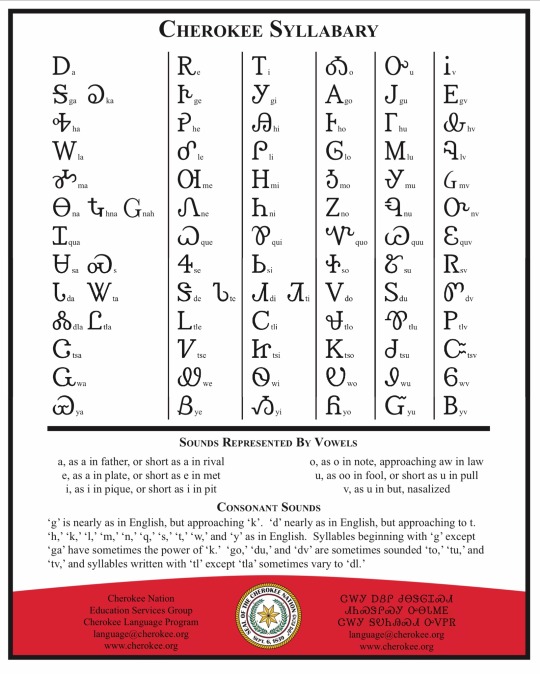
It’s good to learn the syllabary or at least familiarize yourself with it early, as it’s a good introduction to the sounds present in the language. It’s an important part of our culture and the language too. There are also many learning resources that are only in syllabary, so you’re missing out on those if you don’t know it. Here are some good resources for learning:
Simply Cherokee Syllabary by Marc W Case [HIGHLY recommended. I got reasonably confident in syllabary in like a weekend thanks to this book. You can find fairly cheap ebooks versions. It has a story for each character that makes it so easy to remember and associate the characters with their sounds.]
Learn Cherokee Syllabary app [Apple] [Android]
Syllabary fonts and keyboard
There are lots of resources for learning the language. It’s really good to hear it as often as possible when learning vs just reading it, as I’ve messing up so much in my pronunciation from just reading it and now I’m having to break habits. You preferably want to hear first language speakers. There are two main dialects of Cherokee, usually roughly split between Eastern and Western. Dialects vary a lot within those communities as well. If you still have contact with any relatives that speak Cherokee, it’s always better to learn as much as you can from them.
youtube
Cherokee Nation language department [just explore this site, they have lots of resources!]
Cherokee Learner site [explore this site too, this is a great compilation of pretty much every Cherokee language resource, eastern and western]
Online Cherokee Class with first language speaker Ed Fields
RSU Cherokee Lessons [youtube]
Mango lessons
Other apps, including the Memrise course
Online Cherokee dictionary
That’s all I can think to say right now! I’ll probably add to this later as I learn more, find more resources, and get suggestions from others. But for now, good luck, ᏩᏙ, ᏙᏓᏓᎪᎲᎢ !
#Cherokee#tsalagi#ᏣᎳᎩ#ndn#reconnecting#ndn tag#indigenous#Native American#definitely open to corrections and suggestions. please let me know if anything here is wrong or misleading
179 notes
·
View notes
Text


Doc (D'Angelo) and Hush are here <3 <3. And I have a decent bit to say about Hush in particular sooo: - D'Angelo (He/Him) is African American, and just generally very tired, overworked and... not having the best time. He works specifically as a Healer and Warder, and spends most of his free time just laying at home. He doesn't eat very well even though he can probably afford to. He just... has that 'burnt out college student' lifestyle well out of college. He's doing his best :,). Also often ends up coming home late due to his coworkers wanting to get drinks with him. Does not help things. - Hush is such a creature I love him so so much. I had a few important things I wanted to show in his design, and I think I did. Firstly was his being a bit Android... like. Since D'Angelo asked if he was one during their first meeting. All those markings and lines on the skin pass well enough :). Also, he has a lot of Daemonic appearance, with horns and such, but no tail, and the horns are instead supposed to look like a Halo. This brings me to the third thing, which is I wanted him to look like... an angel. Specifically a humanoid Throne (the many-eyed wheels.) He has a few... extra eyes on his horns, which he usually keps shut but very well can open. Still deciding how many. And he has 5 on his face, and maybe more on his hands or other areas. And his outfit is a play on how I dress Vega, just in lighter colours. Specifically Teal and Pink to represent... Min'Ara and E'Laetum. Because I think THEY made him. He is just... such a guy. I loved designing him so much. Hope y'all like him even though I would not say this is a terribly... common interpretation.
#redacted asmr#redacted audio#redactedverse#redacted hush#redacted doc#doc x hush#hush x doc#redacted doc x hush#redacted hush x doc#character design#redacted character design#vegaly art#redacted carpe deus
193 notes
·
View notes
Text
Wishlist Ideas for Closeted Regressors
So, it’s a little early to be posting holiday stuff, but I wanted to get this out there so since I know a lot of people start their holiday shopping around this time. So, If you’re looking for agere gear as a closeted regressor, or you just want something that’s subtle, here are 12 ideas-with pics. Note: pics are not mine, they are screenshotted from Amazon. prices are in USD, as Im American. Happy regressing and happy holidays!

1.Kawaii water bottles, specifically in the style below. The straw on most of these is a lot like a sippy or bottle, so if you can’t have/don’t want one of those, then these are a great alternative! Just look up ‘kawaii water bottle’ on Amazon and a whole bunch will show up. Most are between $15-25 USD
2. Funko Pops. I actually use mine as action figures and play with them (just be gentle with them if you do this!) so they can be great agere toys and decor! You can find just about any character and any fandom too. The prices very greatly, depending on what character and where you buy from. Black Friday deals on Amazon and Five Below are great ways to find them for only a few dollars.
3. Fidget toys; they can make great Agere activities! Because they are designed to stimulate your senses, many function similarly to baby toys. Note: when buying in bulk packages, the quality isn’t great. So consider whether you want to invest in better quality or quantity. Most bulk fidget packs are about $25 USD on Amazon. Dollar stores often have similar products as well, though once again the quality is unknown.

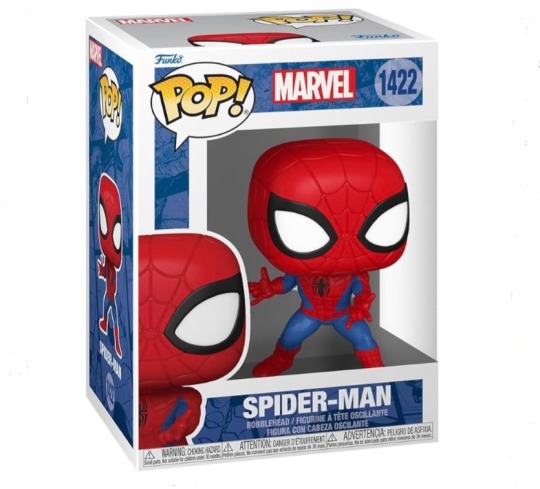

4. Fleece throw blankets. They are super cute, soft, and cuddly! Not only can they keep you warm, but I like to use mine as a playmat. Once again, price can very greatly; typically anywhere from $10-30 USD
5. Coloring books. I think this one is pretty self explanatory, as lots of regressors love coloring. If you’re worried about rousing suspicion, then just ask for an adult coloring book; these often have more intricate patterns, but if you ask for a fandom themed one, it’ll still have some awesome characters to color! Typically around $5-10
6. Silicone night light. These are available in so many colors, animals, and foods—and they are appropriate for any age, thanks to their kawaii esc appearance; they usually cost about $15.
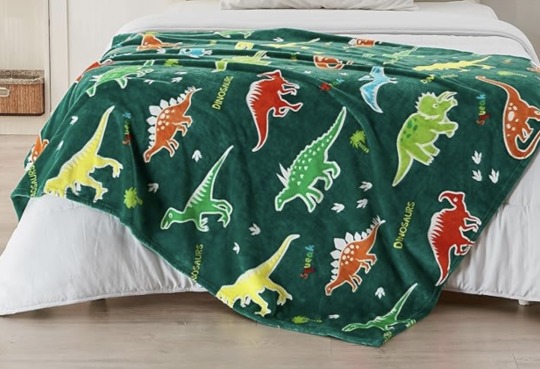
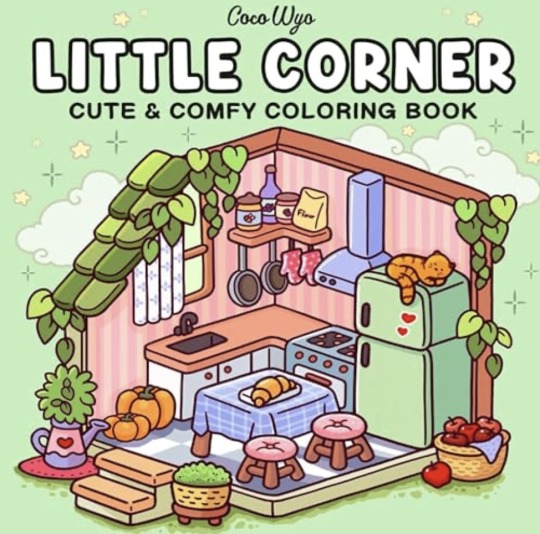

7. Snack boxes. If your dietary needs allow for it, then these can provide some really cool little space snacks. They’re all pre packaged and come with a wide variety of things, ranging from crackers to cookies. And if you want something unique, you can try snack boxes that feature food from other countries. Prices will vary greatly, mostly dependent on the size
8. Lava lamps. These are just cute and make for a neat visual stim. Plenty of colors to choose from too! If you wanted, it could be used as a sort of substitute as a baby mobile since it’s very colorful and relaxing to watch. These can go for anywhere between $20-40
9. Microwaveable plushies. Super comforting, and for any Littles with cramps or chronic pain, they can be disguised as heating pads. Many of these also come with a scent, typically lavender, though you can find them without too. Cost around $20-40, depending on brand.

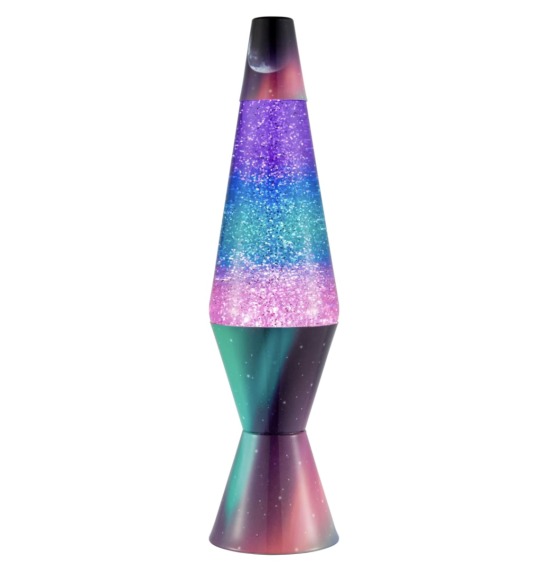

10. Scrapbooking materials. Kind of a random one, but they can be used to decorate a journal, you can make a physical photo album like many of us had in our childhoods, etc. Just a fun craft project you can consider! Typically, scrapbooking kits that include some paper, washi tape, and stickers can be around $10-15
11. Onesie pajamas. Lots of options, and are great if you live somewhere cold! Usually $25-40. These can be animal shaped, character themed, or more subtle like a plaid pattern. Very comfy and make for great little space clothes.
12. Glow in the dark stars. They are cute, fun, and aesthetically pleasing. You can get them in a who,e bunch of colors too! Typically $5
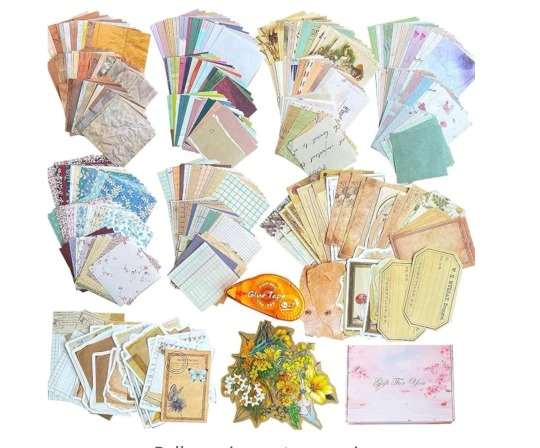
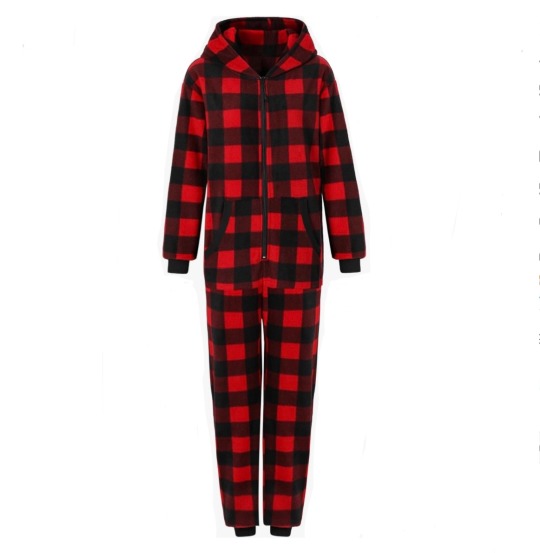
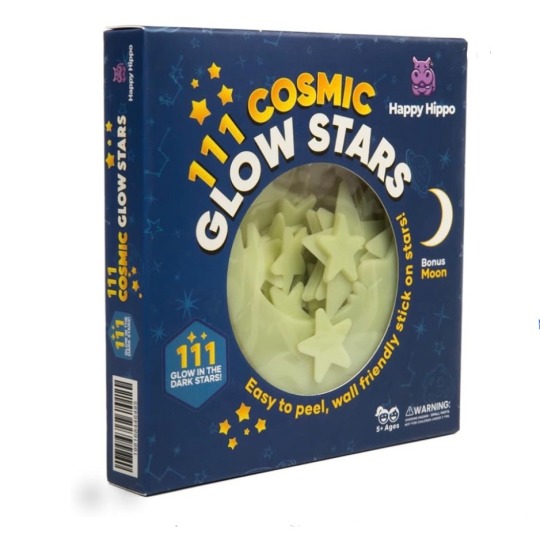

#agere community#sfw regression#sfw agere#agere blog#age regression caregiver#age regression community#sfw interaction only#little space#age regressor#agere little#Age regression wishlist#Little space wishlist#Christmas list#little space holidays#Agere gear#agere sfw
84 notes
·
View notes
Note
What is your favorite bar from the myriad of good bars from Kendrick Lamar involving drake, i.e. Euphoria, Meet the Grahams, & Not Like Us?
note: when I say "Drake" I mean the constructed pop star. when I say "Aubrey" I mean the human being and actor behind the narrative that is "Drake".
Euphoria my favorite bar from this track is the whole "I'm the biggest hater" refrain. i like it because that singular section alone completely obliterated Taylor Made Freestyle. by paraphrasing the late DMX's famous quote about Drake, he is demonstrating how you can respectfully and powerfully use words from the mouths of dead predecessors to discredit your opponent, further showing how much of a stupid tactless clown-show popstar-turned-con-artist Aubrey Graham is in using the AI mockery of Tupac's voice to taunt Kendrick, the current voice of the West Coast and-- to many-- the people's successor to Pac.
6:16 in LA with a slightly lighter tone than the other disses, i consider this song to be a person to person sit-down and final warning to Aubrey that Kendrick is willing to provide. he explains that OVO is full of moles and wires, Aubrey is being hustled with nobody on his side, and going as far as saying "you can't sleep, these images trouble you" hinting at the fact that he would be going after Drake's personal failings that he thinks about when he goes home at night and stops being Drake. which he totally did in meet the grahams. also, bonus points to my favorite rhyme scheme in the song, just cuz it's so much fun to say:
Your lil memes is losin' steam, they figured you out The forced opinions is not convincin', y'all need a new route
like, what a perfect little two-bar rhyme scheme.
meet the grahams in this song, the most powerful lyrics to me (and the ones that usually make me start tearing up) are the ones where Kendrick stops being sorrowful and starts being angry.
You a body shamer, you gon' hide them baby mamas, ain't ya? You embarrassed of 'em, that's not right, that ain't how mama raised us Take that mask off, I wanna see what's under them achievements, Why believe you? You never gave us nothin' to believe in
this reminds me of every traumatic scolding i ever received as a child. i think that the word "disappointed" isn't strong enough to convey the feeling here. something closer would be "let down", because Kendrick's whole thing recently has been peace and uplifting people. he was willing to tolerate the competition for the game, but there were so many times that he warned Drake to not mention Kendrick's family. ultimately, in this stage of their careers, what they were fighting for was not fame or power, it was their legacy. they were fighting over how they were going to be remembered, and Kendrick was not about to let his pacifism make him passive in watching someone pretending to be a part of his culture stain how he will be written about in the records of Hip-Hop history. in specific, i love the line "take that mask off, i wanna see what's under them achievements" because he is BEGGING Audrey to respond honestly, as himself. he is begging him to cast off the facade of "Drake" and speak with any amount of dignity, because at this point there was no more room to speculate on whether or not he actually was who he claimed to be with regards to his music. at this point, the consensus was pretty thoroughly in the camp of "the actor Audrey Graham has been co-opting the image of the American Rapper for his career".
Not Like Us i think i love the bar "he has all eyes on me and imma send it up to Pac" because it goes back to the core of what this is about to Kendrick in fighting for legacy. the media, specifically the white dominated media, sucks the culture (that is to say, Black culture) dry for all it's worth monetarily, and in the process there have been many twisted caricatures or unfair narratives left in the wake of black creatives who are no longer alive to defend their own names. there's an entire tangent about how tabloids disproportionately affect black creatives due to the very fact that white supremacy discounts the respect these names have to the (largely un-melinated) higherups in hollywood, and as a result there is less PR dedicated to keeping their image clean, but i think im not qualified to go off on it. the point is, Drake disrespected Pac's legacy (and continues to do so by owning his ring, really, instead of having it be in the possession of someone who's at least from the west coast), and Kendrick wanted to put some honor on his name. he made sure that he was not just mentioned in the shameful (Taylor Made) and angry (euphoria) parts of this beef, but also its most triumphant moment.
272 notes
·
View notes
Text
Aziraphale's Ring Is a Queer Symbol
In a previous post I hold forth about the symbolism of the lion rampant on the escutcheon of Aziraphale's signet ring. The upshot is that the golden lion is used by Heaven as a symbol of its threat and its merciless, murderous corporate culture, and I argue that in S3 Aziraphale must subvert this stamp of Heavenly ownership and symbolically redefine the golden lion by summoning the courage to be soft.
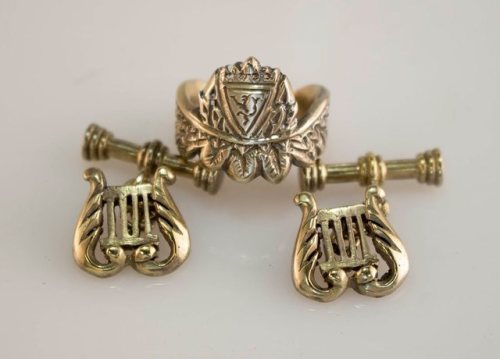
Now I've learned some new stuff about how signet rings are worn. Come, sistren, and get nerdy with me.
Aziraphale's ring is one of several we see angels wearing in Good Omens. Here in an indispensably useful post, @indigovigilance lists the known rings of Show Omens angels and those rings' qualities and placement. Note how of the angels who have rings, everyone except Saraqael and Aziraphale wear their rings on their LEFT pinky fingers. There's a reason for this.
Since the medieval period in Britain and Germany, and from there in the U.S., signet rings have been bestowed by professional associations as a sign of membership, particularly at the upper end of society: trade guilds, colleges, hospitals, the Church(es), noble families, and societies like the Freemasons all issue(d) signet rings to some of their members. The traditional placement for signet rings of show professional affiliation is the left pinky finger.
In fact, as it was not socially acceptable in or past the Victorian era for men to wear rings on more than one finger, men who wore signet rings and wedding rings both would have their wedding rings sized to fit the pinky finger below the signet. If a ring had to be moved to preserve masculinity, it wasn't the pinky ring that was going anywhere. Family signets can be worn on any of a number of fingers, but since the Victorian period the men of the British Royal Family (who are from Germany) have been especial sticklers about wearing their signets on their left pinky fingers as well.
So. If you're British and you have a signet ring that's meant to indicate professional affiliation, you wear it on your left pinky.
But Aziraphale wears his signet ring on his RIGHT hand.
Before I offer my opinion on what that means, here's some more fun background on the history and significance of pinky rings in Anglo-American culture:
The Victorian period was when pinky rings started to become associated with queerness.
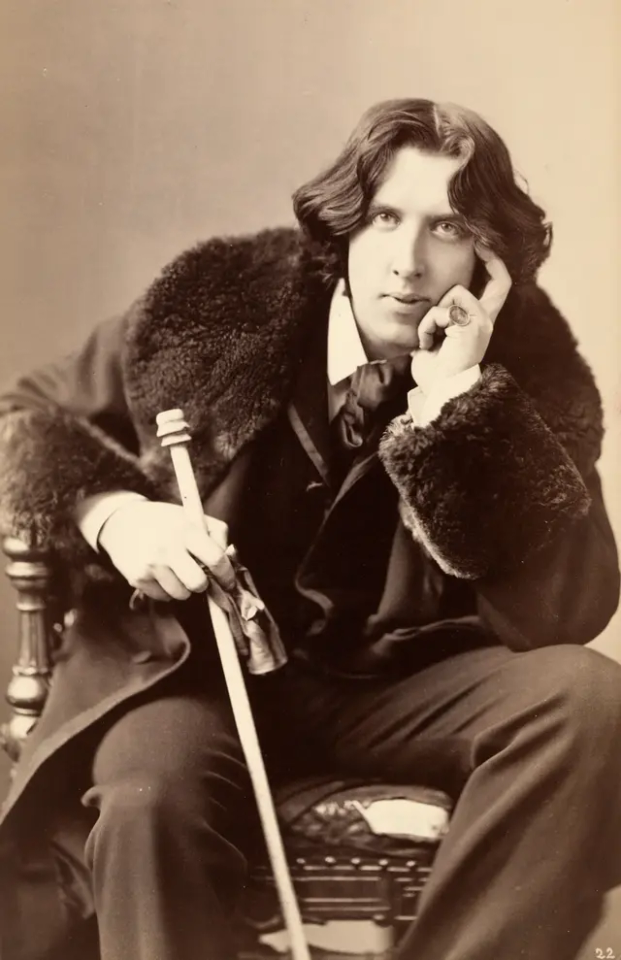
As fellow members of the Hundred Guineas Club, Oscar Wilde and Aziraphale would likely have been acquaintances.
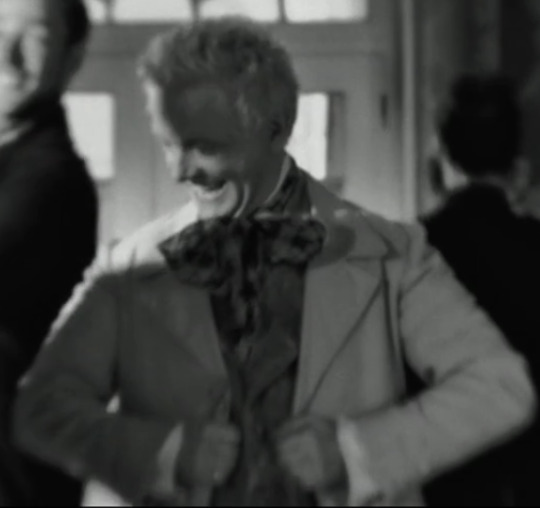
According to Wikipedia (ibid.):
"During the Victorian era, both single men and women uninterested in pursuing marriage could wear a ring on the little finger of their left hand."
This quickly expanded to a pinky ring on either hand. Here's Wikipedia's picture of farmer and philanthropist Caroline Rose Foster in 1917, the Edwardian era, wearing a pinky ring on her right hand:
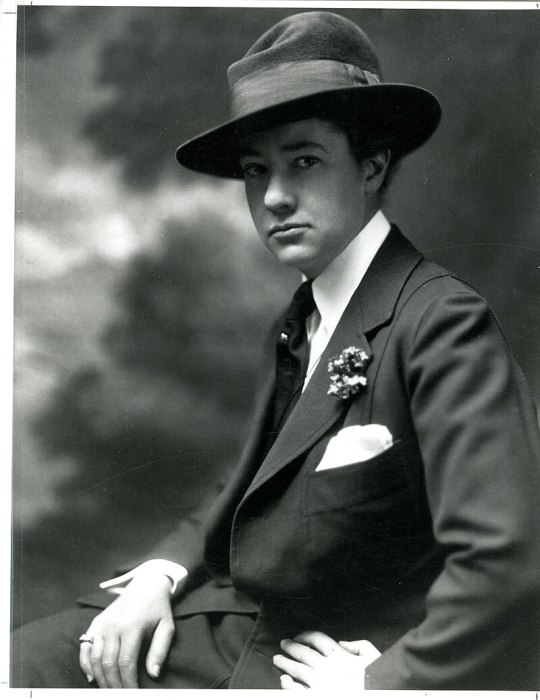
Do you smell a euphemism in "uninterested in pursuing marriage"? I do!
By midcentury--so only 30 years after Ms Foster up there--American and British queers, both men and women, were using signet pinky rings specifically to signal queerness to each other.
"For gay men in the 1950’s and 60’s, a way of signaling to others was through the wearing of a signet ring on the pinkie finger."
"During the 1950’s and 60’s signet rings were worn to signify membership of the gay community; both lesbians and homosexual men wore such rings."
The pinky rings @indigovigilance points out Maggie wears may mean she's an angel; they also match her midcentury lesbian style. Devious of the costumers to give her pinky rings on both hands rather than commit to one or the other.
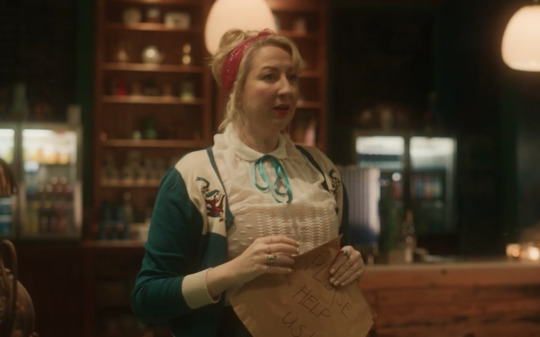
Screenshot by @indigovigilance
To review, there are three reasons a person in Anglo-American culture might wear a pinky ring:
They just feel like it--This can be any kind of ring and can be worn on either hand or both
Professional affiliation--This is a signet ring worn on the left pinky finger
To signal queerness--This is a signet ring and can be worn on either pinky finger
Aziraphale has worn a signet ring on his RIGHT pinky finger at least since he repaired the Eastern "Gate" in the Wall of Eden, so I'm not suggesting that he adopted the 20th-century pinky signet trend to signal his queerness (although as a clockably 'gay' 'man,' Soho fixture, and member of the Hundred Guineas Club, he may well have started it). What I am suggesting is that Aziraphale has been given a ring by Heaven that Heaven intends him to use to show his professional affiliation, but as with the flaming sword he gives away, Aziraphale doesn't use the ring for its intended purpose. By wearing the ring on his right hand, Aziraphale removes the option of interpreting it as a symbol of his professional affiliation with Heaven and renders it strictly a personal ornament. He subverts a symbol of Heavenly menace into an object of beauty and queerness.
I mean queerness in both senses. If a human takes any symbolic notice of his ring, they'll note the signet is on his right hand and conclude Aziraphale is gay. If another angel takes any notice of it, they'll conclude Aziraphale is a bit odd--that he doesn't pay attention to the finer points of how to fit in with the archangels, doesn't do things like other angels do.
In conclusion, pinky signet rings as a queer signal are just the fucking coolest and I vote we bring them back immediately.
#good omens#good omens s2#good omens 2#aziraphale#aziraphale's ring#good omens lgbtq#pinky rings lgbtq#pinky rings as queer flagging#good omens angel rings#saraqael#michael#uriel#sandalphon
435 notes
·
View notes
Text
i added my thoughts to the takavoltti lyrical analysis here but today i want to talk about why i think takavoltti is one of käärijä's most finnish songs ever.
this got a bit long, so just so you know what to expect going in: what i mean by most finnish is that there are references and tone of voice that are very specific to finland, there is complex use of the finnish language AND there are melodic/musical choices in the song that sound very finnish to me.
okay, here goes.
the dialogue that opens the song is already a sort of key moment to this finnishness of it all. when he says "emmä tiedä, kolisee jos kolisee, mut mun on pakko sit koittaa vetää tosi matalalla" he is doing a bit of a voice but more than that, he is talking in a way that is not quite his. his inflection, the rhythm, those are not natural to him or his dialect. you can hear it particularly when he says "koittaa vetää tosi matalalla". i don't know if it's at all easy to hear if you're not finnish, but it's not.. a serious voice or tone. the other two voices, one of them is modified to be high and the other talks like a sports announcer. the whole scene is quite comedic and it's a very specific genre of comedy that is very finnish indeed. it's also the type of thing he has been doing since always. (EDIT: OKEI MORE CONTEXT IN A REBLOG HERE)
funnily enough, you guys know köpi kallio now, the therapist in skit and autiomaa video? yeah köpi and his long time partner in crime viki are good examples of this type of humour i would say. they have their own podcast/show called viki ja köpi show but before that they were radio hosts and have been working together for ten years. the character voices and the whole vibe of the scene in the beginning of the song is very viki ja köpi to me, very ylex type comedy (yes ylex the radio station who did the ruisrock interview who still isn't back from the war).
and the small comedy bits stay in there through out the song, and they continue to have the same delivery instantly recognisable as comedic.
and that isn't to say the subject matter can't be serious. i think, again, this is something that feels inherently finnish to me. other finnish people feel free to chime in because this is hard to explain, but our culture is one where coping through making light of things is quite normal. and our sense of humour tends to be on the darker side, at least if you compare it to the american style of comedy that has taken over globally. so to make a song about there being too many demands on you and how you have a problem with setting boundaries and agreeing to insane shit, but to do it by interjecting the song with jokes just idk.. it sits in our culture lmao.
i honestly don't know how to explain this better, but quite dark comedic elements like this (after all he gets properly fucked up in the stunts it seems) in a song with a serious subject matter is something we've been doing for decades in this country (juice leskinen, for example) and it is something so loved by finnish people. we love a song that is just fucked up on multiple levels. käärijä is just adding his own style to this cultural history.
okay, onto the language.
the verse opens with "tekevälle sattuu" which is a finnish proverb.
quick finnish lesson: the word sattua in finnish means both to hurt and to happen. the word tehdä means to do but tehdä kipeää means hurting. like.. now that i think about it tämä tekee kipeää = this is doing (me a) hurt is valid and correct finnish lmao.
tekevälle sattuu, the proverb, actually means "things happen to those who do" but he is playing with the different meanings here, because he goes on to say "ain sattuu ku tekee" which can both mean "things always happen when you do" or it can mean "it always hurts when you do". then he goes on to say "ku tekee, ku kipee, ni kipeetä tekee" which is once again playing with words, because kipee here means both pain but also being sick. "ku tekee, ku kipee" would translate as "when you do as if you're sick" and "kipeetä tekee" means that it hurts.
so to recap (i'm not trying to provide a smooth translation, but highlight his wordplay:
tekevälle sattuu = things/pain happen to those who do [things]
ain sattuu ku tekee = shit happens/you get hurt when you do [things]
ku tekee, ku kipee, ni kipeetä tekee = when you do [things] like you're sick [in the head], you get hurt
so this is all to say two things: he's using the finnish language in a very clever way that really only becomes clear if you know the language and all of these idioms and proverbs. and also that he is very good at what he does. it has taken me four paragraphs to explain 13 words.
and he doesn't even end there. "oon yllytyshullu, ain hulluksi yllyn" is more play on words. jesus, jere. okay guys, stay with me.
yllytyshullu i explained in my previous analysis, but recap: yllytys means incitement and hullu means crazy. yllytyshullu is someone who does crazy shit when prompted.
"ain hulluksi yllyn" here he is using the word yltyä which is the same root as yllytys, but yltyä means usually more like.. to intensify. (for example: sade yltyy = the rain is getting heavier, or tuuli yltyy = the wind is picking up)
so to say hulluksi yllyn, he's saying like.. i let myself be incited and/or i always take it to the max, to the point of crazy.
and then he uses very clever rhyming words: "ja tää hullunmylly on kylmempi kylpy". hullu means crazy, mylly means mill, hullunmylly is basically a hullabaloo.
as you can tell, all of this is like bordering on impossible to translate accurately into a smooth translation. and that's just the first verse, but i'd be here all night if i explained the whole entire song 😭
and this to me is a very clear sign that no matter what sort of an audience he has internationally, he's not compromising on his language. and i find that admirable and, as a finnish person, very comforting too. this song is sort of reassuring, like he is reinserting himself very firmly into finnish culture, with the language and the comedy that do not translate very well.
and if you look at the pre-chorus and chorus, the specific references keep coming: calling him kärtsä (finnish people have a lot of nicknames for him), "hyppää kybäst pommi" the slang use of kybä to mean ten meters, he mentions duudsonit (the dudesons) and he mentions jorvi hospital. all of these feel like he is signalling to a very finnish audience. (also "oon syypää sun hymyyn" could count as a cheek reference, cheek used to be like the biggest rapper in finland).
okay, time for melody and music speak. i only have one simple point here: melodically and musically speaking that has to be the most suomi iskelmä chorus i've heard from him. ever.
you could take that melody and insert it as the chorus to like any song on iskelmä radio. iskelmä is a finnish schlager music genre. kind of impossible to describe but something that finnish people will instantly recognise. the opening, with the piano synth could also open an iskelmä song.
very suomi, very iskelmä.
so.
all of this is why i think takavoltti is about as finnish as it gets. a suomi iskelmä about having serious issues with boundaries that uses clever finnish and paints a comedic picture of a banged up black-eyed käärijä who has dislocated his shoulder but is still showing thumbs up is like.. so much finnish condensed into three and a half minutes.
i know not everyone thinks the song is hilarious but i do. it's both hilarious and very serious and that's how we like it here.
and of course the fact that there is an "ai vittu" in there. we like that too.
86 notes
·
View notes
Text
since @sketchy-scribs-n-doods asked why birth certificates are racist:
preface: read this post about eugenics so that I don't have to write that overview again.
anywho! the very very short version is that there was a guy named Walter Ashby Plecker (hereafter "the Plecker fucker") who was a doctor in Virginia in the late 1800s/early 1900s. like he was born right around when the Civil War ended and his family owned slaves, if you want to get an idea of the time and place we're talking about.
the Plecker fucker, along with a couple of his good buddies John Powell and Ernest Sevier Cox(1) from the Anglo-Saxon Club(2), wrote and lobbied for a law called the Racial Integrity Act (incidentally, one of the blueprints the Nazis used for their own laws), which did a couple of things:
it legally categorized every person into either "white" or "colored," with "white" being only people with a completely unbroken and provable white European heritage – with a teeny tiny exception for people who were less than 1/16th Native American that he was bullied into including(3) – and "colored" being literally everything else, with no specificity as to whether it meant Black or Asian or Native American or whatever;
it prohibited white people from marrying colored people (though notably not banning having sex with them: we're talking about a guy whose family owned slaves here, so you can do the math on that)
it allowed for the sterilization of certain undesirable people, such as the mentally ill; and, most importantly for our purpose:
it required all births and marriages to be registered in a big state-wide database, with the races of all parties listed.
and he also set himself up as the first guy in charge of that registry, so that it would be done exactly the way he wanted it.
prior to this, if you could get away with passing as white, you were (generally) treated as white. this was to prevent any white-passing mixed race people from marrying into white society (because their birth certificate records would show that their parents had nonwhite heritage), and eventually eliminate mixed race people, period.
now, obviously birth certificates weren't in common use before this law, so at least the first wave of people affected by the law could still (in theory) lie about their ethnicity and establish themselves as white on their birth certificates, thus allowing them to continue marrying "real" white people.
not a problem! the Plecker fucker fancied himself a bit of a genealogist (meaning he thought everyone with the same last name was related, somehow), so he'd just go in and edit people's records to say "colored," invalidating their marriages in the process, and ordered all of the people under him to do the same. like, there's a letter he sent out to the county-level people that was like, "anyone with the last name Collins [yes, really] is actually mixed race, DO NOT LET THEM GET MARRIED TO WHITE PEOPLE, EDIT ALL THEIR RECORDS."(4)
outside of the obvious negative effects of the law in general not allowing interracial marriages (until it was overturned by Loving v. Virginia in 19-fucking-67) and sterilizing anyone disabled or "feebleminded," him going in and literally erasing Native heritage from records has prevented Virginian Native Americans from being able to claim federal tribal recognition, because it's all just "white" or "colored," which could mean anything nonwhite.
anyway, that's why birth certificates are racist. they were made up by a racist guy to do more racism. and then that racist guy got hit by a car and died.
I stg this is the short version. the longer version was idk how many pages before I melted into a depressed puddle of goo and almost flunked out of my senior year of college.
(1) Ernest Sevier Cox was a weird fucking dude in that he was really good friends with Marcus motherfucking Garvey, to the point that they attended each other's events, dedicated books to each other, and wrote each other a lot of letters even after Garvey was deported to Jamaica (and Cox personally tried to get Garvey released from jail when he was imprisoned for mail fraud). This was partly because white nationalism and black separatism accomplished the same ultimate goals (i.e. Black people leaving the US) from different angles, but I think they just also genuinely liked each other? For some reason??
(2) Basically the KKK but for genteel, refined, upper-class people instead of violent, disorderly peasants (yes, they legit disliked the KKK because it was a poor person thing). Also, I can't find it again, but at one point when I was researching all this in college, I was looking through old school newspapers and either William & Lee or William & Mary had a junior Anglo-Saxon Club, sort of like a Young Republicans, and one of their contributions to the student newspaper was a piece about how they definitely weren't racist and how dare they be accused of racism, they just didn't want blacks or whites mixing! How is that racist? (Yes, they used the word "racist," and I have no idea what their definition of racism was, if it wasn't what they were doing) Anyway, I think about that a lot.
(3) This is informally called the Pocahontas Exception, because a lot of really, really influential, prominent and rich Virginians actually took a lot of pride in claiming to be descended from Pocahontas and John Rolfe (even if they weren't), and without the exception, they'd all be classified as "colored." Plecker didn't want any exceptions at all (he was, at the very least, not a hypocrite about what he thought "white" meant), but given that some of the people the law would make "colored" would potentially be voting on the law, he had to include the exception or risk it not being passed at all.
(4) The reason I even got into this subject in the first place is that one of my family tree names is on that list and we're pretty sure they moved to Kentucky because of it, but it doesn't necessarily mean they're related to us OR that they were white-passing mixed-race people: they could well have been just plain white people who happened to have the same surname.
68 notes
·
View notes
Text
Okay guys, I’m making an episode post!!! Already posted a short one on Escape From Camazotz, but here’s a brief interpretation and meaning of each episode title! And please, this is an interpretation, not concrete proof!
Episode 1: The Crawl
Ok, I've seen a lot of people translating this and interpreting it to be an episode about a mission, and while this could be right, I think there’s more to it. We all know very well about the show’s constant references to DND, the roleplaying game the party loves. In DND terms, a crawl, or a dungeon crawl, is a scenario in which players must navigate through a sort of maze, “dungeon” if you will, while battling monsters, avoiding traps, and solving puzzles.
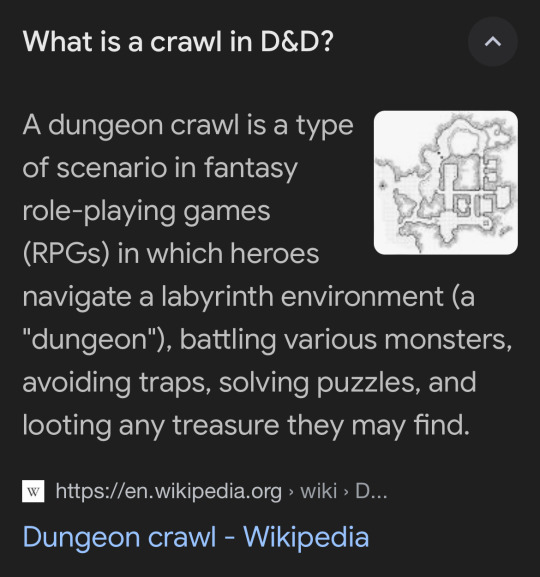
So, this episode might be a mission, as has been said many times, but it could also be in a maze of types. A possible terrain in the UD? I just find it very interesting.
Episode 2: The Vanishing of —----------------
Ok, this has pretty much been confirmed for being Holly Wheeler, considering how much she’s appeared in recent bts pictures, but Nancy and Karen fit the 5 letter pieces don’t they? Just a thought, though it probably is Holly.
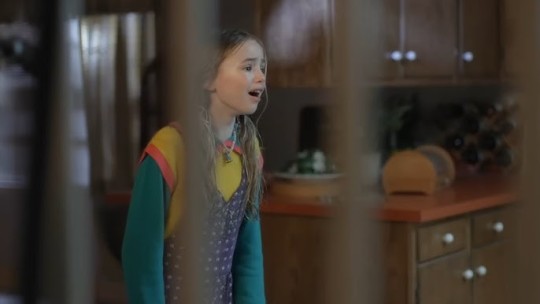
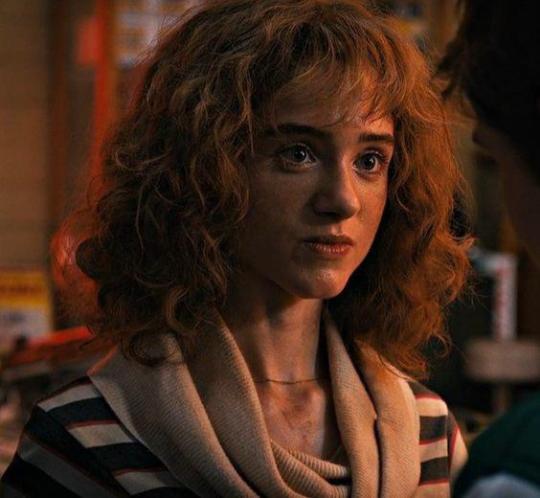
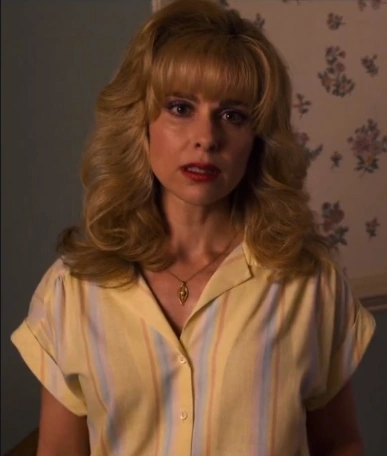
As for what it could mean in dnd terms, not much really, just some vanishing spells, but this episode will definitely be interesting!
Episode 3: The Turnbow Trap
I was hoping to find this as a dnd term as well, but sadly, it was not. I did find something else rather interesting though. Turnbow is the Americanized version of the Alsatian name Dürrenbach, which means dry stream. So “The dry stream trap,” what could that mean? I was honestly puzzled at this for a while and I couldn’t figure it out. What do you guys think?
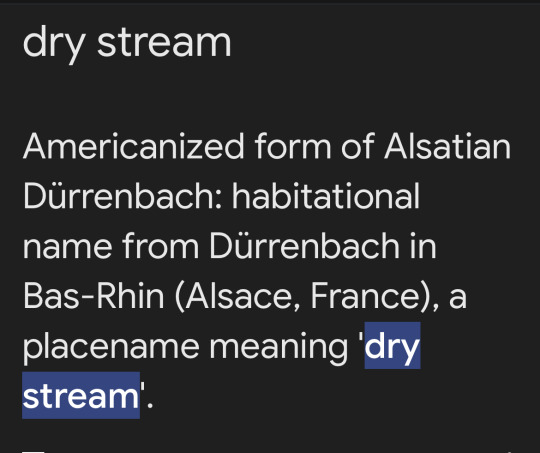
Episode 4: Sorcerer
Okay, we're all clearly thinking of Will Byers here. Maybe not a cleric, but a Sorcerer is quite similar. Clerics are more medicinal, healers by class. On the other hand, Sorcerers are masters of arcane magic, which is using magic energy in the world to manipulate reality through spells. This definitely ties in to the theory that the UD is Wills mindscape.
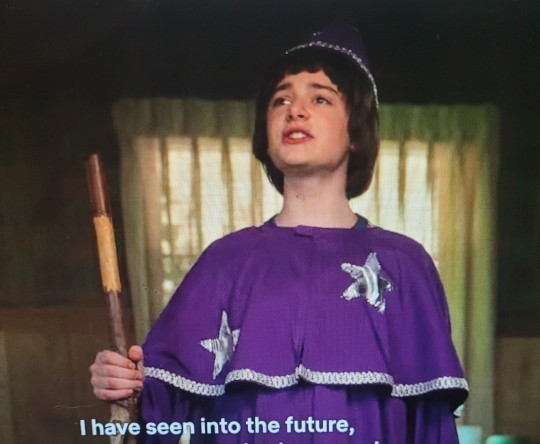
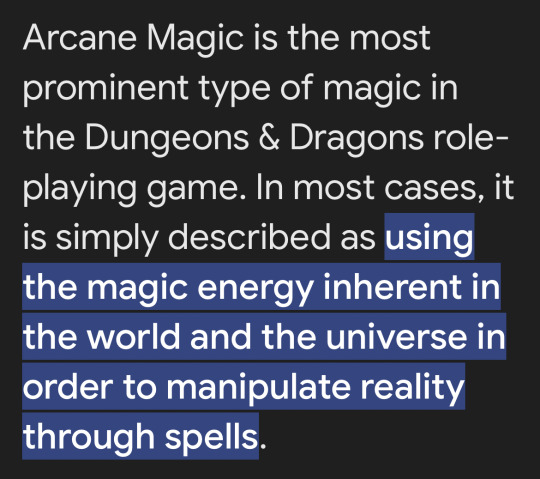
Episode 5: Shock Jock
Shock jocks are essentially radio broadcasters or talk show hosts who entertain listeners by using humor that is mildly offensive to some people. This could totally be a reference to Dustin, considering his constant tinkering with radios. Maybe he’ll be in charge of radios or somehow be part of a secret news source. There are many theories, really.
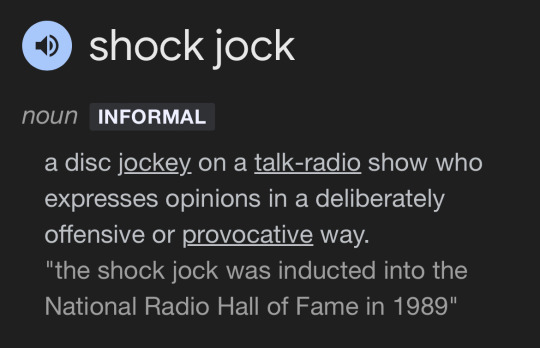
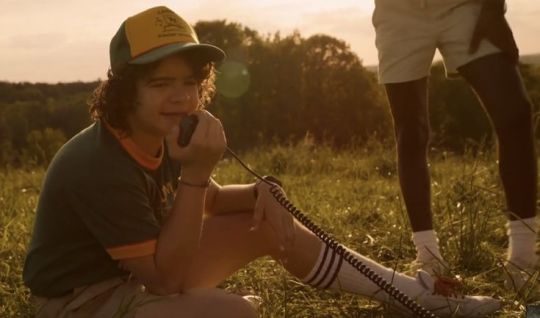
Episode 6: Escape from Camazotz
Oh, I love this one. In dnd, Camazotz is the Olman god of bats and horrible things that fly in the night. ANd who got killed by bats in the previous season of Stranger Things? Eddie Munson! No, I don’t think this means he’ll come back, but I do think he’ll be a villain of sorts.
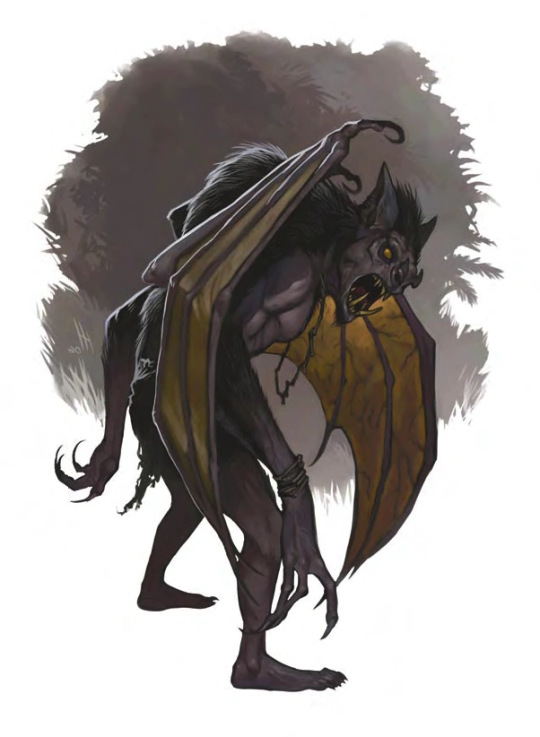
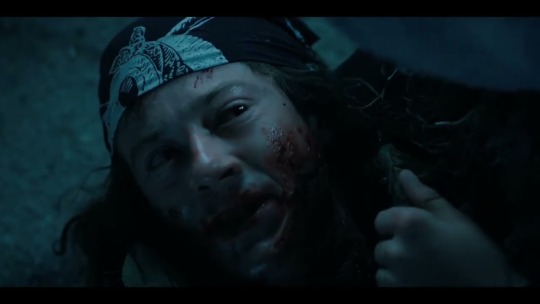
There’s something else, though. Camazotz is also a planet in A Wrinkle In Time, which has been theorized a lot in Stranger Things. Camazotz is essentially a dark planet controlled by evil. People who live there don’t have their own thoughts and are controlled by a central brain called IT. Remind you of anyone? Yeah, Vecna (No not It from It lol). Camazotz more specifically defines what happens when someone just hands over their free will. Sort of like what Vecna does with his victims. He tries to make them accept their death before he kills them.
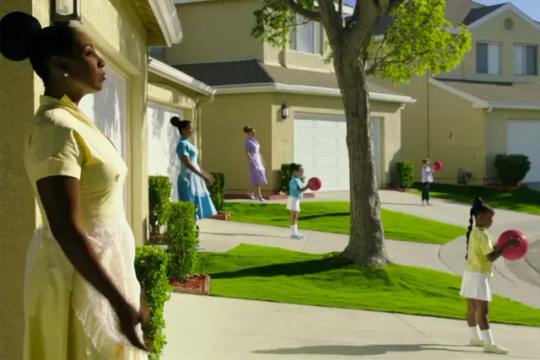
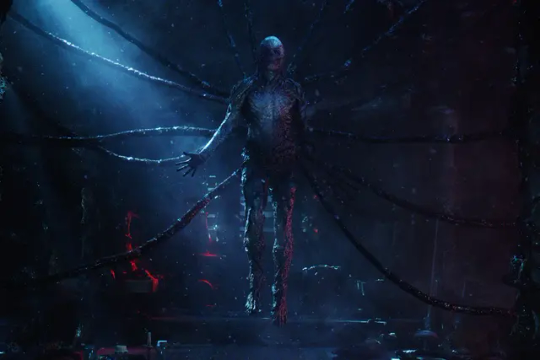
Episode 7: The Bridge
This one was pretty hard for me to really analyze. I’ve looked through dnd searches and tried to look for meanings of bridges in ST, but I haven’t really found much. Generally, its communication and union, which is kind of conflicting, considering the goal for the final season is to destroy the UD. Maybe I’m looking too much into things, and it’s a literal bridge into the UD. All I could really find is in the movie Dungeons and Dragons: Honor Among Thieves, a bridge is crumbled by a sorcerer, but that’s really it.
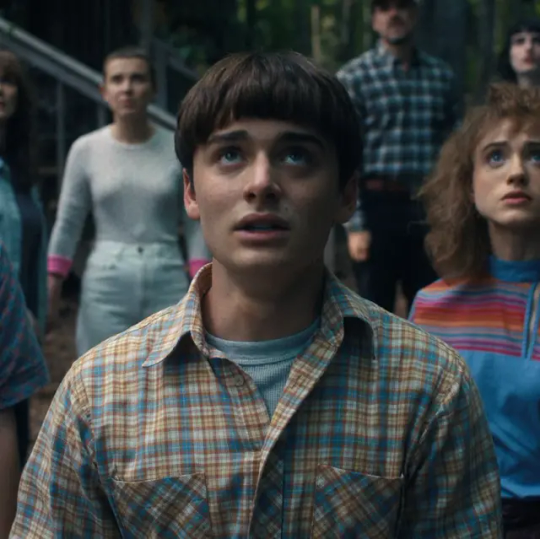
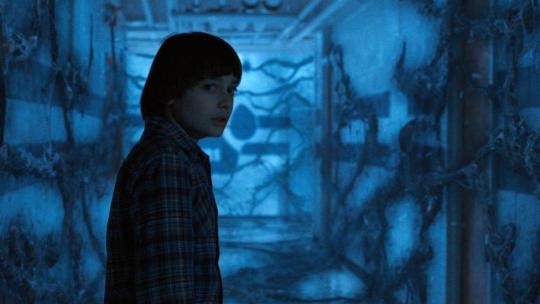
Maybe it has something to do with the UD being Wil’’s mindscape, and it’s a sort of bridge he creates between the two worlds. Or maybe he is the bridge between the UD and the normal world.
Episode 8: The Rightside Up
I think this one’s pretty self explanatory. The UD will be destroyed and everything will be Rightside Up again. Just like the last episode of Stranger Things Season 1 was called the Upside Down, this is the plain opposite. It will be the episode where Hawkins is saved, and Vecna, whatever he is, is defeated for good. (and byler becomes endgame :) )
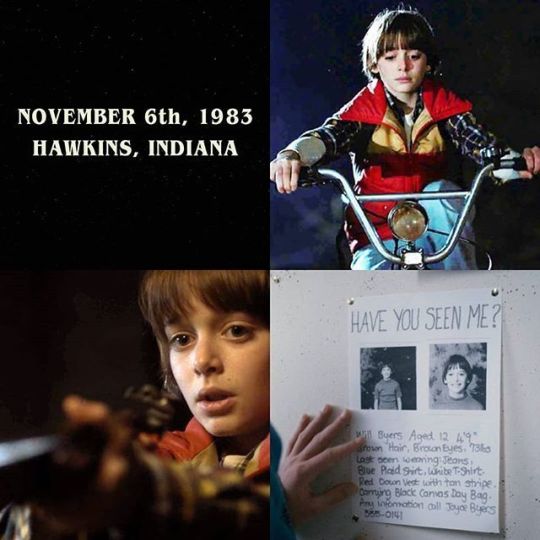
Hope you liked this analysis! It was really fun to make! And please leave your interpretations in the comments if you saw something differently! Thanks :)
#byler#stranger things#mike wheeler#will byers#dustin henderson#lucas sinclair#the party#vecna#st5#st5 speculation#stranger things day#stranger things analysis
63 notes
·
View notes
Text
Darren Criss Talked His New Musical "Maybe Happy Ending," The "Glee" Costume Pieces He Still Has, And So Much More — All While Playing With Puppies
Watch of the pure puppy chaos here:
youtube
So, you know Darren Criss.

Whether it be from Glee, American Crime Story, or the many Broadway shows he's starred in, you literally can't help but adore him.
Well, to celebrate his new Broadway musical Maybe Happy Ending, we invited him to sit down, relax, and answer a few questions, all while playing with the most precious puppies in the world.

It was a delightful time for everyone.

He shared his favorite BTS memories about Maybe Happy Ending so far, and what it's been like working with newcomer Helen J. Shen:

He also revealed that he's a karaoke lover, but has very specific rules to make for the BEST karaoke night. And tbh, he's not wrong:

And if you haven't already, be sure to check out Darren in Maybe Happy Ending.
To learn more about these adorable puppies and adopt one of your own, head on over to North Shore Animal League America.
#darren criss#buzzfeed#helen j shen#the puppy interview#maybe happy ending#maybe happy ending bway#instagram#youtube#video#nov 2024
87 notes
·
View notes